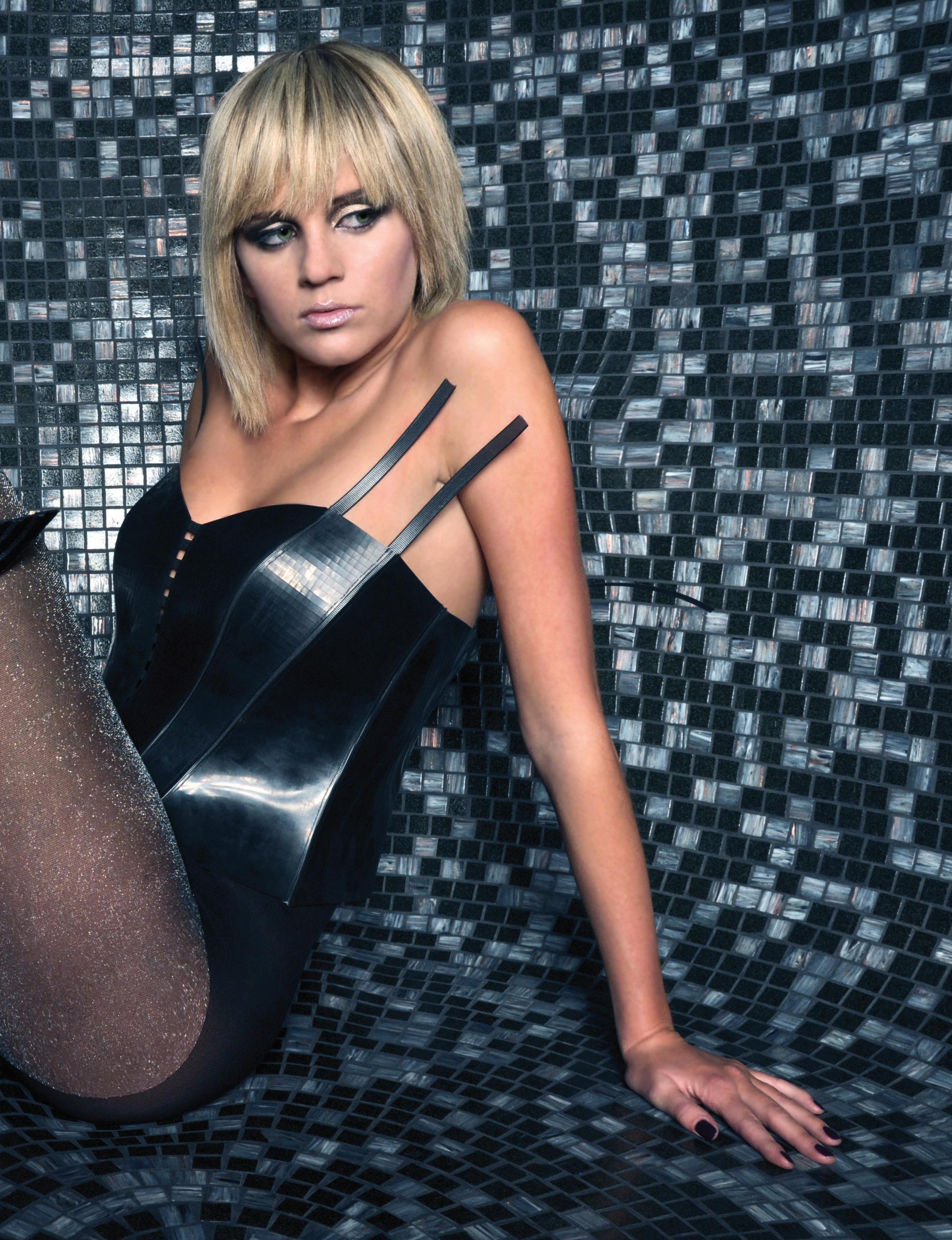
Is AI the Feminist Ally We Need This Summer (and forever)?


Is AI the Feminist Ally We Need This Summer (and forever)?
Interview with Lilla Ronga
Summer is here — and with it, a season of bold ideas, reinvention, and well-deserved rest. In this issue of Women & Business Magazine, we dive into the topics that define not just the summer, but the future.
We explore how AI is reshaping education, from learning new professions to building smarter careers. Lilla Ronga, founder of Bright Academy, introduces a groundbreaking adult learning model, and we spotlight a revealing new study on the realities of working parents in Europe.
You’ll also meet Medina Mesic, a woman breaking through in tech as she launches her own marketing agency, and Krisztian, a floral artist whose creativity blooms on the international stage. In a departure from our usual lineup, we chose to feature a man in this issue — not by coincidence, but to challenge outdated gender stereotypes about what constitutes "women’s" or "men’s" work.
Plus, discover a new kind of escape — luxury picnics curated by Annamaria — and learn from Barbara how to care for your skin during the sunny season.
From beauty to business, and tech to tranquility — this edition is full of sizzling summer insights.
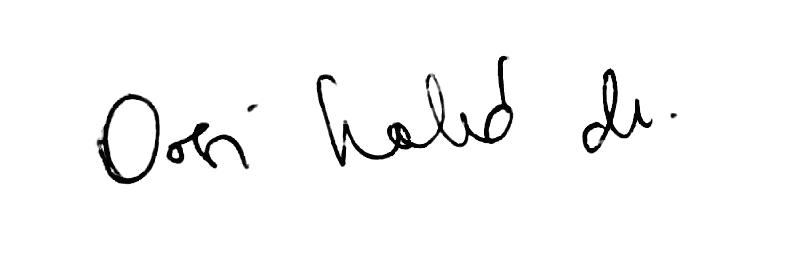
Enjoy the read,
Dr. Orsi Szabó Editor-in-Chief
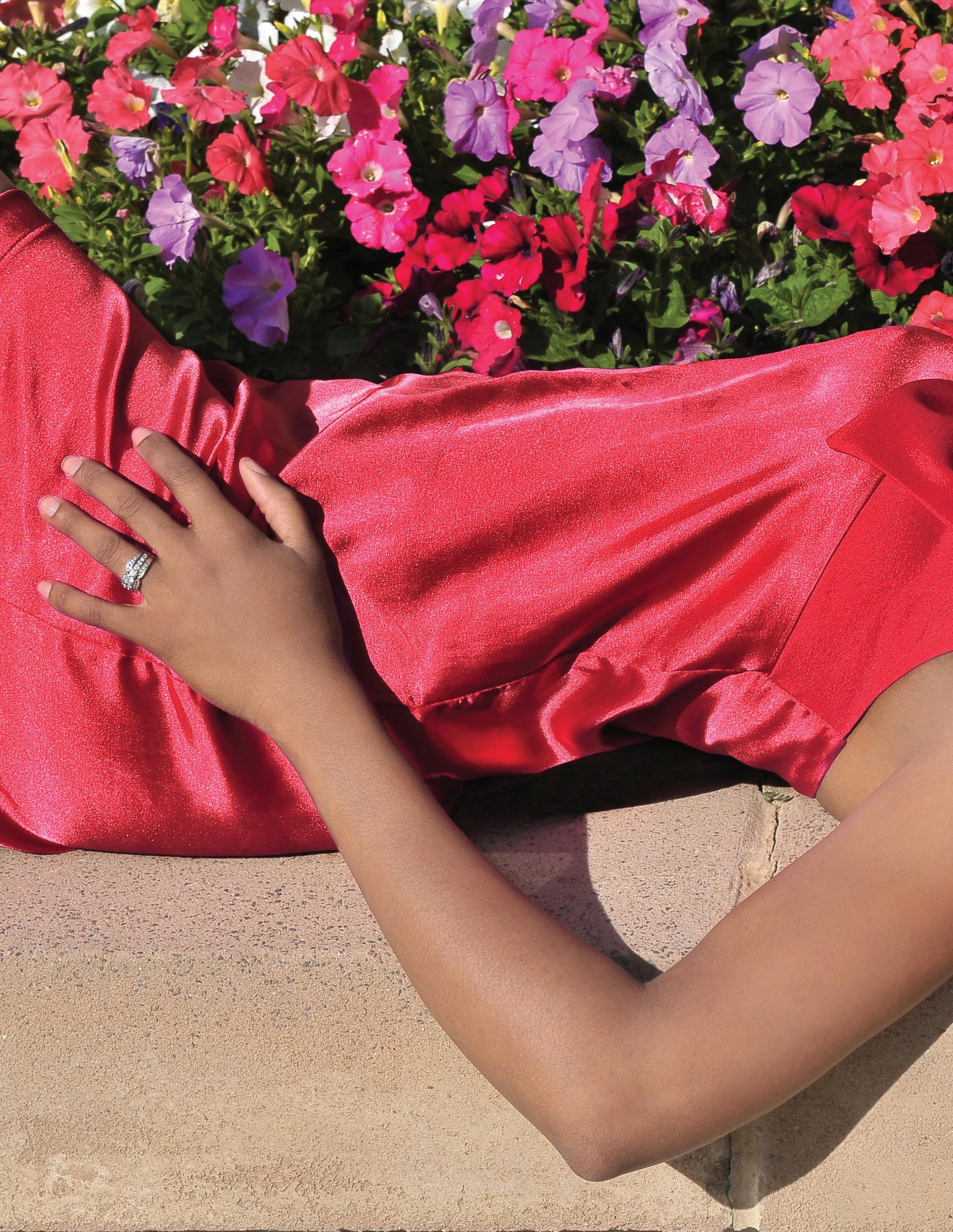

From humble beginnings in his family’s flower shop at age 18 to commanding stages and workshops across Europe, Krisztián Kövér is redefining the art of floristry. As the driving force behind Botanic Art, he’s turned an intuitive love for flowers into an internationally recognized brand, partnering with major European companies, leading trendsetting visual campaigns, and mentoring the next generation of floral artists. With every stem and composition, Krisztián shares more than style; he cultivates connection, emotion, and a shared passion for the transformative power of blooms.
How did your journey with flowers begin? Was there a defining moment when you knew this would be your path?
When I started working at my parents' flower shop at 18, I never imagined I would become a florist - let alone that it would become one of the defining elements of my life. Even when I applied to a floral design exhibition at the age of 21 or 22, I didn’t think I’d one day be showing others what’s trending or sharing the stage with the world’s best florists.
To answer your question directly: there wasn’t one moment. I’ve simply been in an exciting flow ever since, and I still don’t know where the waves will take me next.
Botanic Art is now a recognized brand internationally. How did you begin building your personal and professional brand beyond Hungary?
In 2015, I was contacted by a floral design-focused Instagram page. They asked me to create some design photos of my work, and even sent me flowers to use. That opportunity led to many more. Today, I work with several companies and organizations in similar ways.
I’m also a member of international organizations and serve as a brand ambassador for several Dutch, German, and Austrian companies.
What does it take to stand out on the international stage as a floral artist? What were the key turning points that helped you gain global visibility?
To stand out, you need a unique vision. You must use flowers “differently.” Once you begin to gain visibility and you manage it well, one opportunity naturally leads to another.
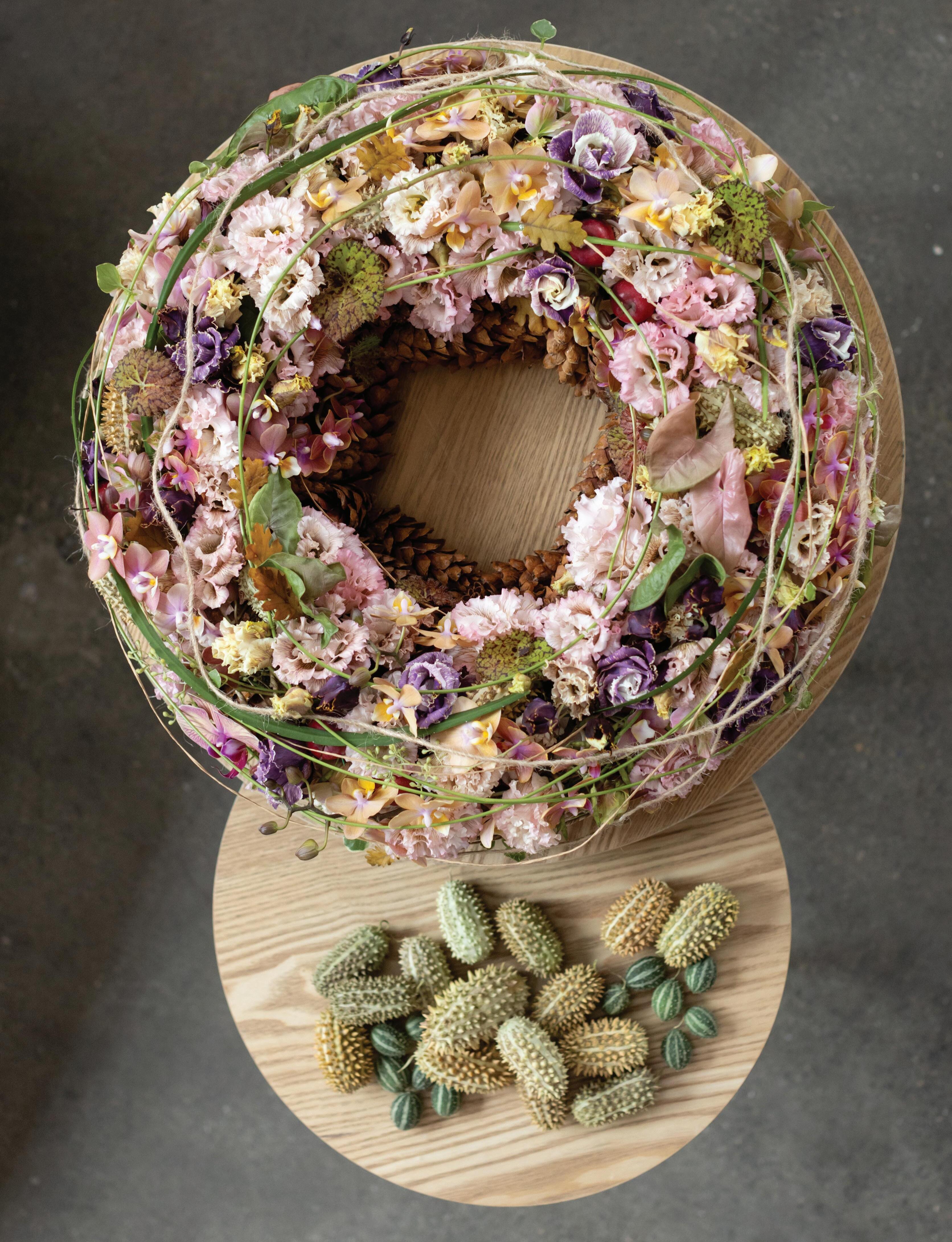
You’ve participated in and won multiple international floral competitions. Could you share what these experiences were like and how they influenced your career?
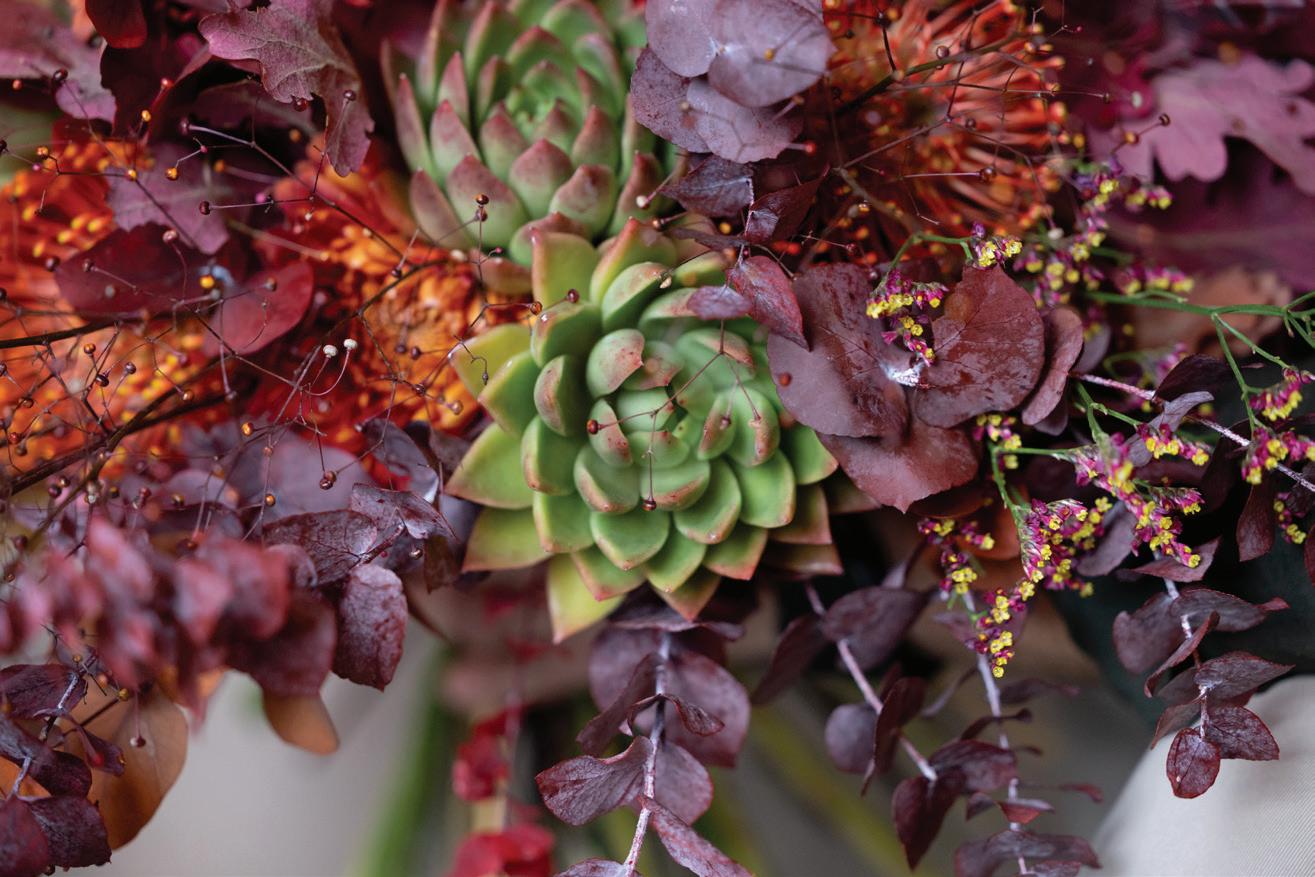
This ties back to the previous question, because with these types of invitations, one truly leads to another. For example, I once hosted a renowned German floral master in Hungary, who later recommended me to a client in the United States. That led to me teaching workshops there as well. Similarly, a connection from Russia later started working at a Dutch company, which allowed me to further strengthen my professional network there.
At the same time, it’s just as important to me to understand the needs of participants in my workshops here at home. I want to pass on the kind of expertise they came for — after all, they’ve invested their time, money, and energy to attend. And often, they return later with a colleague to join another session.
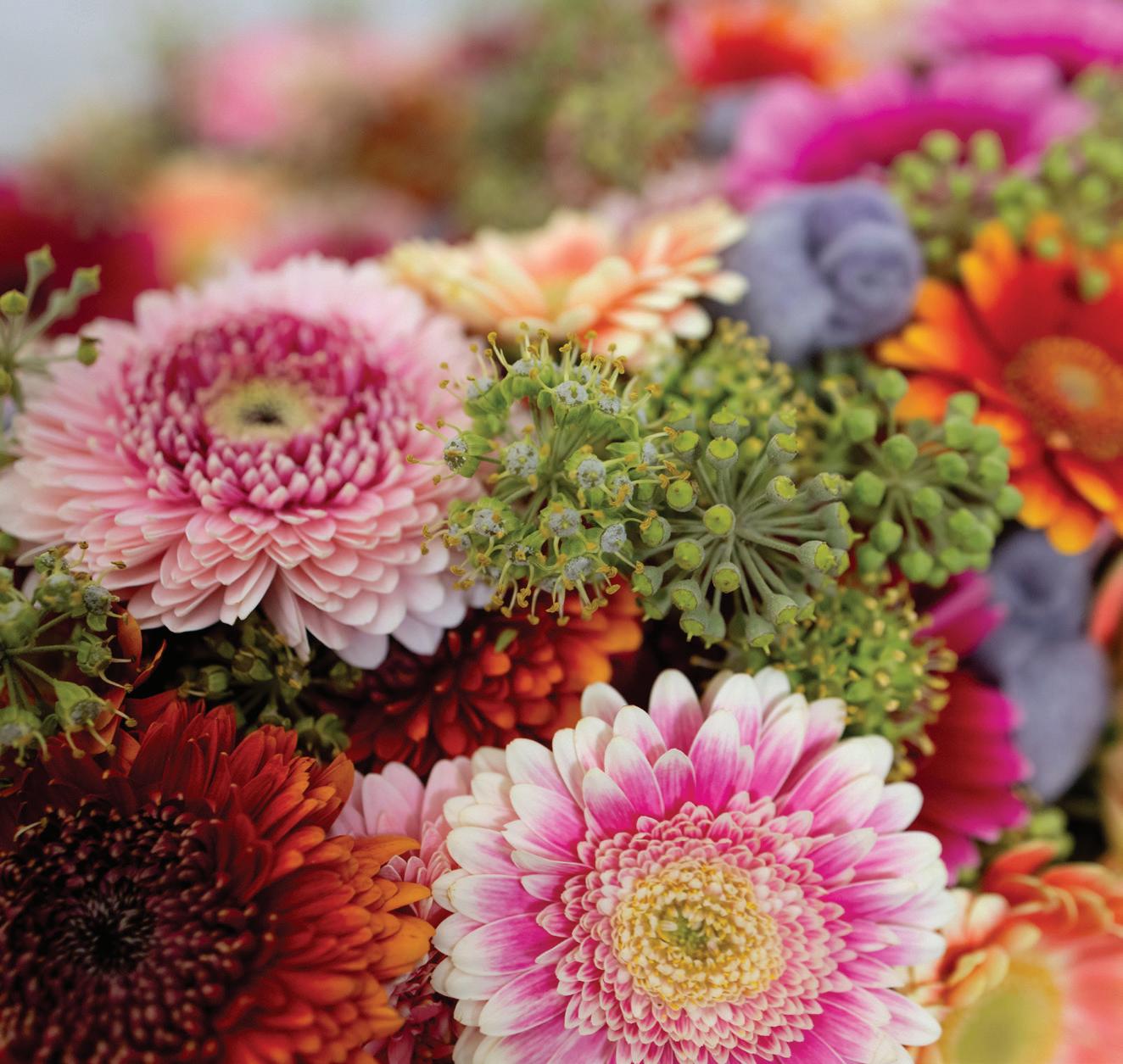
You’re also involved in international collaborations. What kinds of projects or brands do you typically work with, and how do these partnerships come about?
I don’t think it’s a surprise when I say that one opportunity often leads to another. Jokes aside, take a photoshoot in the Netherlands, for example there are so many professionals present that after seeing the results of that work, more partners often reach out.
These types of projects typically originate from major companies, as they’re often multi-year campaigns that extend far beyond social media. They include global showcases, trend shows, and workshops, all of which require significant financial investment and organization.
Flowers have become a luxury product. Of course, we can live without them, but it’s our job to show how even a single flower can improve our mood in countless ways.
Among my partners are also suppliers of complementary tools and materials, like floral wires, decorative elements, vases, and containers. By combining the right products from the portfolio, we can create even greater visual impact.
It benefits me, my clients, the industry, fellow florists, and ultimately the customer, who might end up buying a bouquet that was initially inspired by one of my photo shoots. Everything influences everything. I learn so much from my students and partners — it’s an ongoing, beautiful cycle.
You teach and lead workshops around the world. What motivates you to educate others, and what do you enjoy most about this part of your work?
The main goal - and the most rewarding feeling — is sharing the love of flowers. To show that a flower isn’t just a plant, but a significant, meaningful part of life. Through floral compositions, we can truly impact others — whether it’s a single red rose for someone you love, a wild poppy picked on a walk, or a monumental installation at a grand wedding.
The intention is always the same. Only the scale changes.
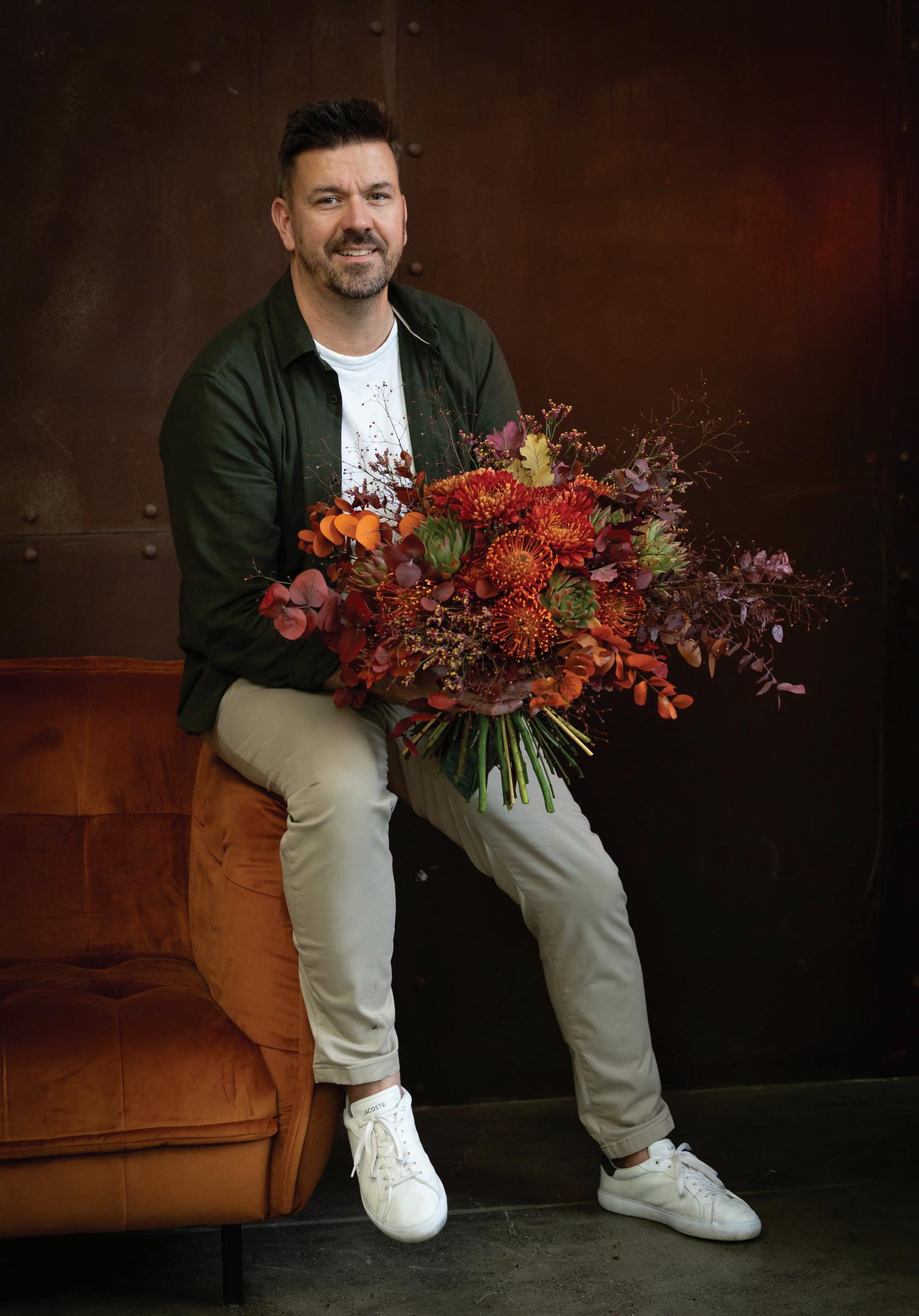
What if the most memorable experiences weren’t held in grand ballrooms, but under open skies, surrounded by soft textures, thoughtful details, and the people who matter most?
That’s the vision behind Tothgather — Annamária Tóth’s elevated picnic concept that redefines modern celebration.
Merging hospitality, design, and storytelling, Tothgather curates luxurious outdoor moments where every element from hand-selected florals to artisan treats — is designed to slow you down and bring you closer. More than an event service, it’s an invitation to pause, connect, and savor the beauty of being together.
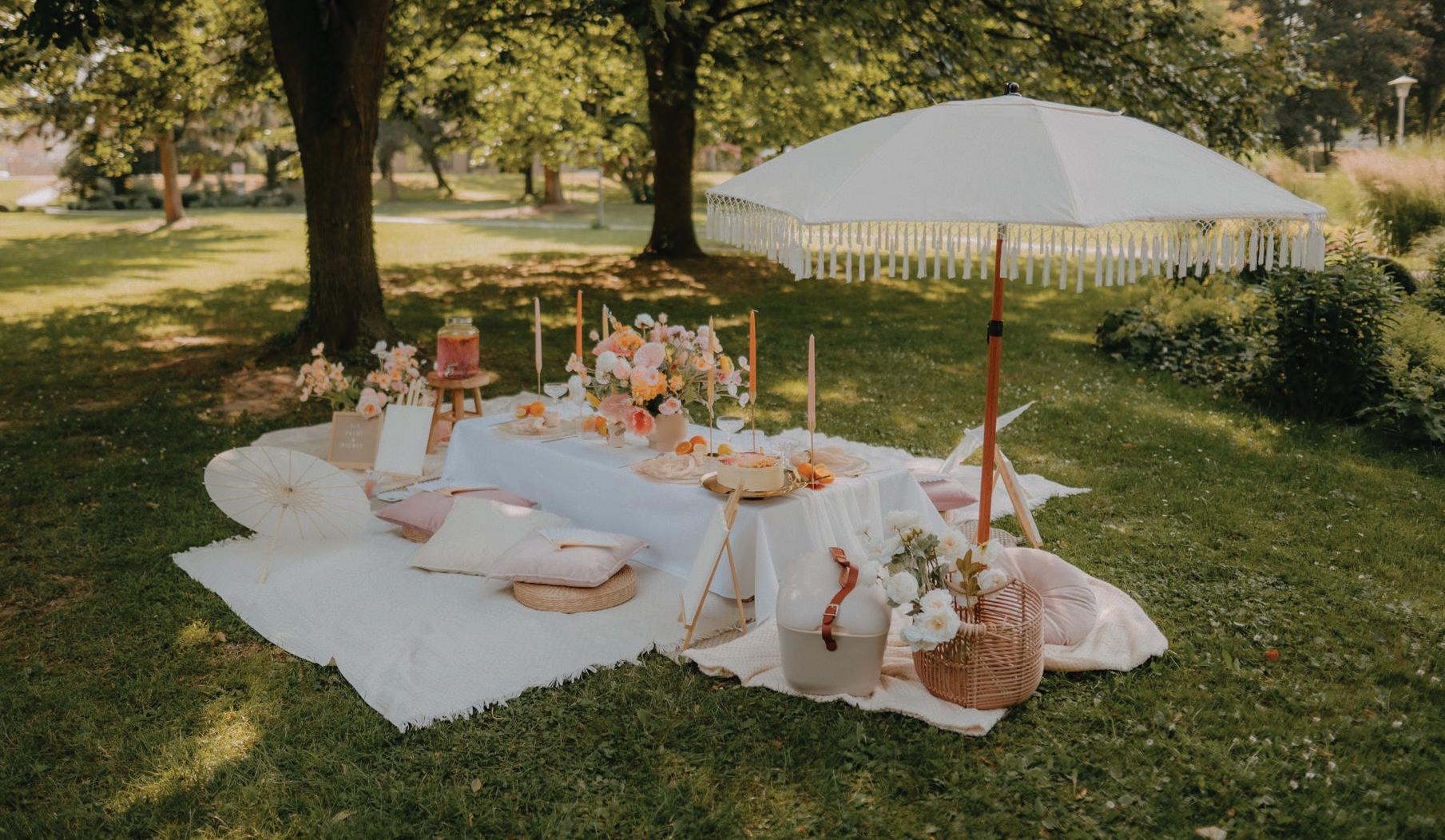
You’ve lived in several countries before settling in Graz. Can you tell us more about your international journey and how it has influenced you both personally and professionally?
My journey didn’t begin with privilege — it began with purpose. I was raised in a small Hungarian village by my widowed mother, alongside four siblings. Life was modest, and from an early age, I understood that if I wanted to change my circumstances, I would have to take bold steps on my own. That mindset — rooted in resilience — has guided every chapter of my life since.
At 18, I was working in a watermelon field under the summer sun, saving every forint I could to afford a one-way ticket to England. My first investment was that ticket. My second was believing in myself. I landed in a picturesque countryside village, where I eventually worked at the Rothschild Hotel. It was there, serving at elegant weddings and refined events, that I fell in love with the art of curating unforgettable moments. The attention to detail, the joy in the air, and the beauty of a well-thought-out setting stayed with me. I knew, even then, that uniting people in meaningful, beautiful ways was something I deeply resonated with.
From England, I moved through Wales, then Scotland — always working in hospitality and customer service. These weren’t just jobs; they were opportunities to bond with people, to learn how to anticipate needs,
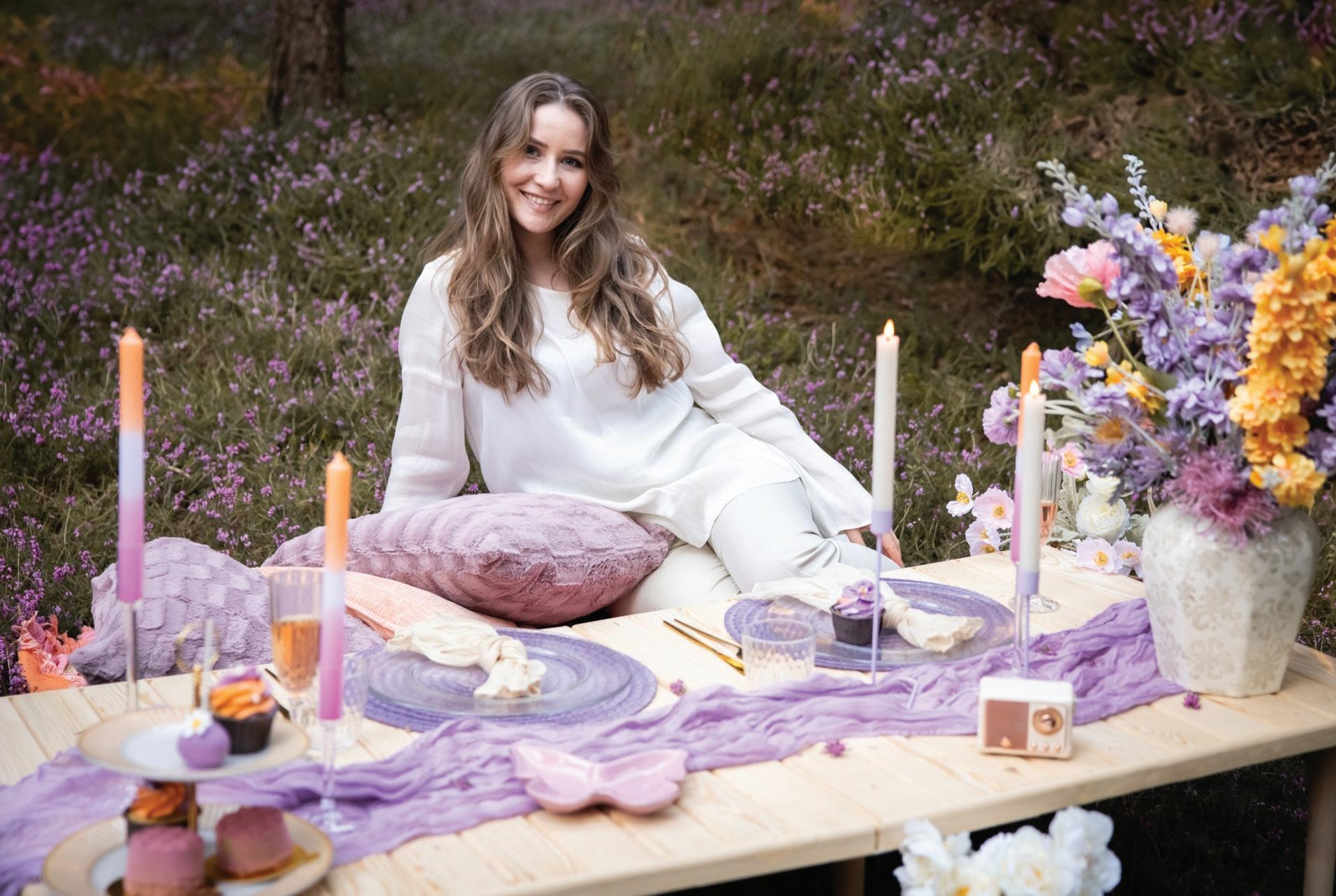
solve problems with grace, and understand the subtle power of making someone feel truly seen.
After the pandemic, I craved more color and light in my life, so I moved to Mallorca. There, I met a young woman starting her own social media business at just 23. Her independence and drive inspired me—I realized I wanted to build something of my own, too. Every woman I met who dared to build something from scratch encouraged me to believe I could do the same.
Eventually, love brought me to Graz. Not speaking the German language was overwhelming at first — and to this day, I still face challenges with it — but I try to take one step at a time and remind myself that progress matters more than perfection.
The fear of starting over — again — was real. But instead of
playing it safe, I chose to bet on myself. I launched my own luxury picnic business, weaving together everything I love: hospitality, aesthetics, storytelling, and human connection.
As a woman in business, especially one who started with very little, I’ve learned that strength isn’t about being the loudest in the room. It’s about showing up, day after day, with intention, empathy, and integrity. It’s about building something graceful, even when the odds are stacked against you.
The values I learned along the way — resilience, gratitude, and the power of small details — are now at the heart of everything I design for my guests. Looking back, I’m proud that I turned uncertainty into opportunity — and even more proud that I can now create spaces where others can pause, celebrate, and feel special, too.
What inspired you to launch Tothgather, and how did the idea originally come to life?
Tothgather was born out of a deep desire to build beauty, connection, and intentional moments in a world that often moves too fast. After years of working in hospitality and being part of unforgettable celebrations — from countryside weddings in England to boutique events and sunset gatherings in Mallorca —I realized how much I loved the atmosphere of shared joy. But it wasn’t until I moved to Austria that the idea truly took shape.
Arriving in Graz, I didn’t speak the language fluently, and I found it harder than expected to make friends and form real, meaningful connections. I felt a bit lost, unsure of where I belonged. I knew I didn’t want to start over in a job that didn’t reflect my creativity or personality, so I began thinking about how I could build something significant from the experiences I had gathered over the years. I asked myself: What would I create if I could do anything?
Around that time, my best friend from Hungary asked me to plan her bachelorette party. I poured my heart into every detail — turning an ordinary celebration into an extraordinary experience. That process lit me up. It was as if the universe gave me a final nudge, a sign that said: This is it. That moment of joy, of seeing people connect and feel unique in a thoughtfully designed space, made everything click.
That’s when the idea of Tothgather came to life. I envisioned curated outdoor picnics that feel both luxurious and warm — effortlessly charming experiences where guests can pause, celebrate, and connect without the stress of organizing it all themselves. More than anything, I wanted to create spaces where people could pause and fully immerse themselves in the moment, surrounded by the people they cherish.
Tothgather is a blend of everything I love: storytelling, aesthetics, hospitality, and genuine human bonds. And its name reflects that intention. **Tothgather — to gather together — ** is more than just a brand. It’s an invitation to bond, to be present, and to celebrate life’s memorable moments.
It’s not just about picnics — it’s about moments people remember.
What were some of the biggest challenges you faced when starting out, and how did you overcome them?
Starting Tothgather was incredibly exciting — but also full of unknowns. One of the biggest challenges was doing everything for the first time, without a roadmap. I had the vision and the passion, but no background in running a business — and I was navigating it all in a new country, in a language I was still learning. That was intimidating.
Another major challenge was selfdoubt. It’s easy to compare yourself to others or wonder if your idea is good enough — especially when you’re just getting started. I had to learn to quiet that voice and trust my instincts. I reminded myself that I didn’t need everything to be perfect — I just had to begin.
There were also practical challenges: figuring out where to source decor, building everything from scratch, dealing with Austrian bureaucracy, and managing all aspects of the business alone. But every time I solved something — even a small thing — it gave me more confidence.
What helped me most was staying connected to my why. I wasn’t just setting up pretty tables — I was creating spaces where people could feel special, seen, and connected. That belief kept me going through every obstacle — and still does.
What does a typical day look like for you as a founder and creative mind?
No two days are ever quite the same—and that’s part of what I love about it. Some days are filled with hands-on creativity: styling tables, picking up refreshments, testing new setups, or assembling décor elements by hand. On those days, I lose myself in the details—because that’s where the magic happens.
Other days are much more behindthe-scenes. I’m answering emails, creating content, managing bookings, budgeting, sourcing items, or trying to figure out how to build something from a sketch I scribbled the night before. I’m not just the creative—I’m also the marketer, the planner, the cleaner, the delivery person, and sometimes even the therapist for my own overthinking.
Because I work outdoors and with live events, I’ve learned to be flexible. Weather shifts, last-minute changes, or logistical hiccups mean I’m constantly adjusting and problem-solving.
But no matter how busy or unpredictable the day gets, I always return to why I’m doing it: to create beautiful, intentional moments for people. That reminder keeps me grounded — and grateful — even on the longest days.
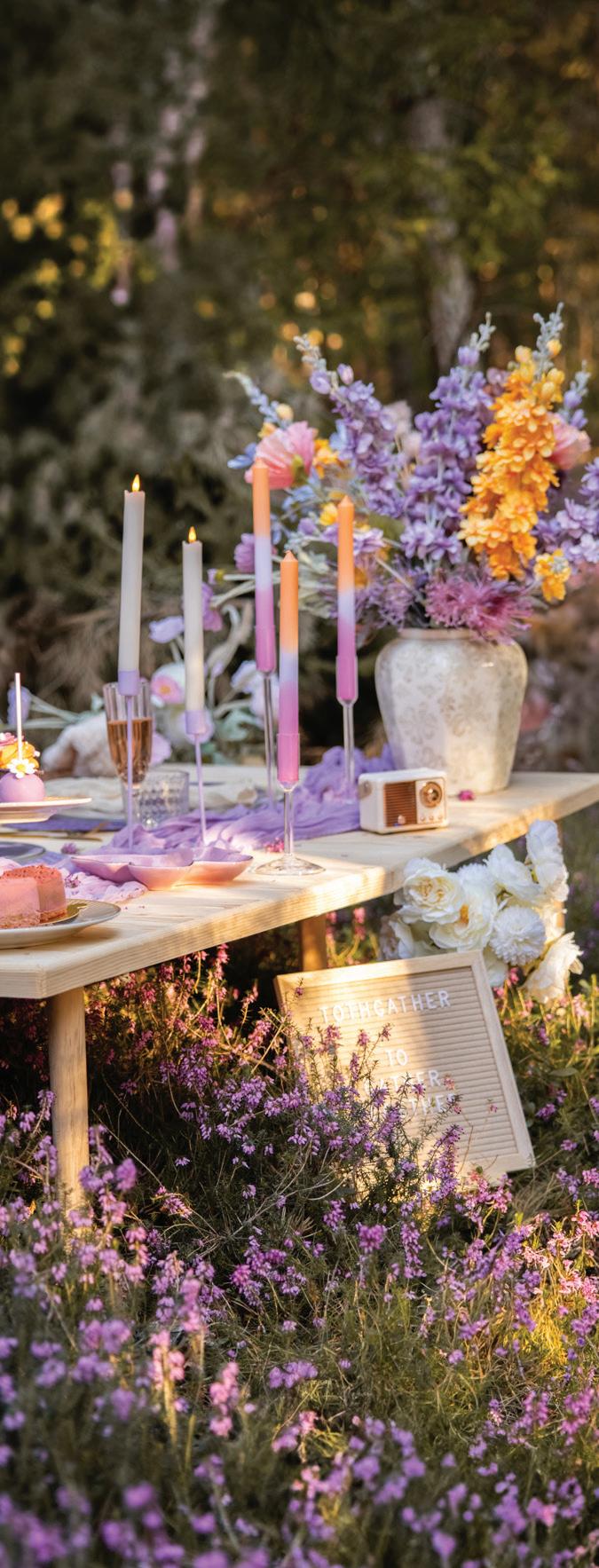
How sustainable is this type of business model in the long run? What have you learned about balancing creativity and profitability?
To be honest, I never started Tothgather with the goal of making a lot of money. I simply wanted to do something that reflects who I am— something meaningful, creative, and truly mine. I hoped that, with time, I could build a life around it and make a living doing what I love. That’s still my goal: to wake up excited about my work, and curate something joyful and lasting not just to others, but to myself too.
Of course, like most small businesses, it came with a big financial investment and plenty of risk. I didn’t have a blueprint or a safety net — just a vision, passion, and the willingness to work hard. The beginning was challenging, and to be honest, it still is sometimes. But I’ve learned that growth doesn’t happen all at once. It’s step by step, day by day — work, work, work. Little by little, things start to move forward.
Balancing creativity and profitability was something I had to learn along the way. I’ve always been drawn to the aesthetic part — the flowers, the styling, the atmosphere — but building a sustainable business meant thinking more strategically. I had to get comfortable with numbers: understanding pricing, tracking expenses, and making decisions based not only on what looks good, but on what works.
Maintaining a sense of purpose has been essential for me. I don’t want to grow at any cost — I want to grow in a way that stays true to my values. I’ve learned how to repurpose, plan smarter, and simplify without sacrificing the magic. And when someone walks into one of my setups and feels something — that quiet joy, that sense of connection — I know I’m on the right path. The rest will follow.
Who are your typical clients? Are they mostly individuals, or do you also collaborate with companies and organizations?
Most of my clients are individuals — couples celebrating anniversaries, friends surprising each other for birthdays, or families simply wanting to slow down and share a beautiful moment together. Many of them are women who appreciate thoughtful details and want to create something special without the stress of planning it all themselves.
That said, I’m starting to see more interest from small businesses and local brands, especially those who value aesthetics and meaningful experiences. I’ve hosted styled shoots, intimate team gatherings, and I’m always open to creative collaborations. I often team up with photographers and fellow small entrepreneurs — people who bring their own passion and artistry to the table. For example, I’m currently planning a Picnic & Paint Workshop, where I’ve partnered with a professional painter who loves teaching others in a relaxed, outdoor setting.
Whether it’s a personal celebration or a curated brand moment, I love working with people who care about connection and atmosphere as much as I do. Tothgather is designed to be both flexible and personal — whether it’s two people in love or a small company looking to do something different, the goal is always the same: to create a moment that feels meaningful, beautiful, and unforgettable.
What kind of people are most open to your concept — have you noticed any trends in mindset or demographics?
Definitely. I’ve noticed that the people most drawn to Tothgather tend to value experiences over things. They’re usually the kind of people who long for a calmer pace, who appreciate beauty in the little details, and who love creating memories with the people they care about.
Most of my clients are women — often in their 20s to 40s — who are thoughtful, emotionally driven, and love organizing surprises or soulful gatherings. Many are expats or creatives looking for new ways to connect, especially in a city where they might not have a large family or social circle. I think the concept speaks to people who are a little nostalgic at heart, but also modern and intentional in how they celebrate.
That said, I also love seeing how many men reach out — especially those wanting to surprise their partner with something truly unique. Some plan romantic proposals, others just want to experience an intimate moment that feels deeply personal and unforgettable. It’s incredibly touching to witness that kind of thoughtfulness.
At the end of the day, it’s less about age or background, and more about mindset. The people who contact me often say something like, “I saw your picnic and it just felt like something I’d love to be part of.”
That tells me they’re not just looking for a pretty setup — they’re looking for a feeling.
How scalable do you see this business? Are there plans to expand or evolve Tothgather in new directions?
Right now, Tothgather is very personal — every setup, every detail, every interaction still has my full attention, and I truly enjoy that intimacy. I never wanted to grow just for the sake of getting bigger. But I do see potential for Tothgather to evolve slowly and meaningfully over time.
In the future, I can imagine expanding beyond Austria — maybe even bringing Tothgather to my home country, Hungary, where I believe there’s a beautiful market for soulful, outdoor experiences like this. My ultimate dream is to create picnic-styled weddings: intimate, nature-inspired gatherings that blend simplicity with thoughtful elegance. That vision feels close to my heart, even if it’s still a few steps ahead.
I also see opportunities to branch out creatively. I’d love to introduce seasonal themes, host workshops, or bring to life mall group experiences that go beyond traditional picnics — like storytelling dinners, selflove circles, or collaborations with local creatives who share similar values. I’m open to pop-up events in new locations or partnerships with boutique hotels and brands that align with the Tothgather spirit.
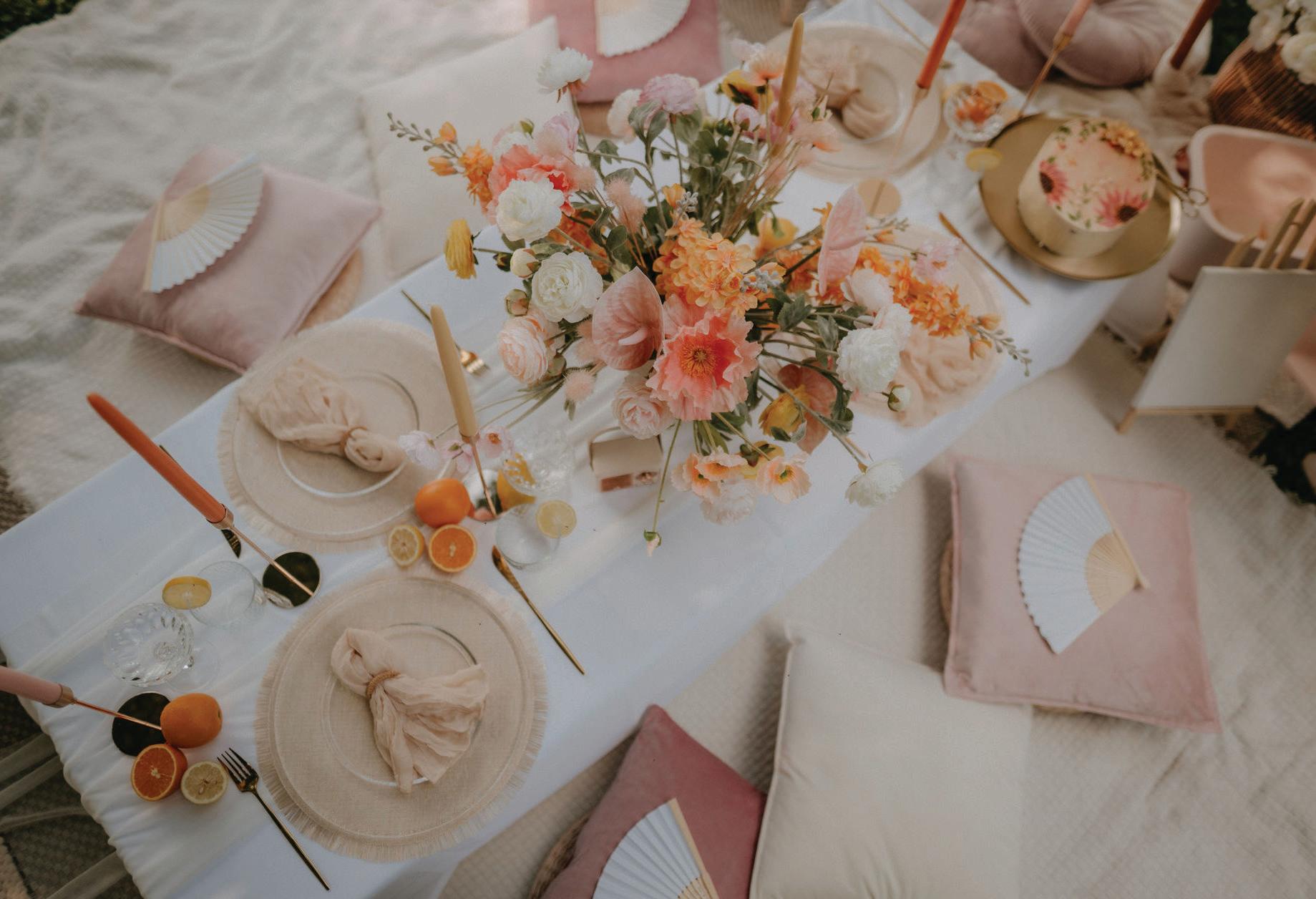
At the moment, I’m working on a new project called 12 Strangers, 12 Stories — a gathering designed to bring together twelve people who have never met, sharing good food and drinks while engaging in guided conversation. In a fast-paced world where genuine relationships often take a back seat, I want to create a space for people to slow down and engage meaningfully — with one another, and perhaps even with themselves.
At its core, Tothgather is about meaningful connection. I believe that concept can grow with purpose — without losing its soul. For me, it’s not about scaling bigger, but about growing deeper.
Is there anything else you would like to share with our readers?
I just want to remind anyone reading this — especially those who might feel a bit lost or unsure of their next step — that it’s okay to start small. You don’t need to have everything figured out to begin. If something lights you up, even quietly, follow it. That’s how Tothgather started: with a simple idea, a bit of courage, and the belief that beautiful things can grow from humble beginnings.
Also, don’t underestimate the power of creating space — not just physical space, but emotional space —
for yourself and for others. In a world that moves so fast, slowing down is a radical act. Whether it’s through a picnic, a shared meal, or an honest conversation, we all deserve more moments that feel meaningful.
And finally, thank you for taking the time to read my story. It means more than you know.
Hot weather and sunscreen can clog pores fast. Opt for a gel-based or foam cleanser that removes excess sweat and SPF without stripping your skin. Look for ingredients like:
- Centella Asiatica: Soothes inflammation and calms redness.
- Green tea extract: Antioxidant-rich and refreshing.
Expert hack: Overwashing can actually make your skin oilier. Stick to morning and evening — no more.
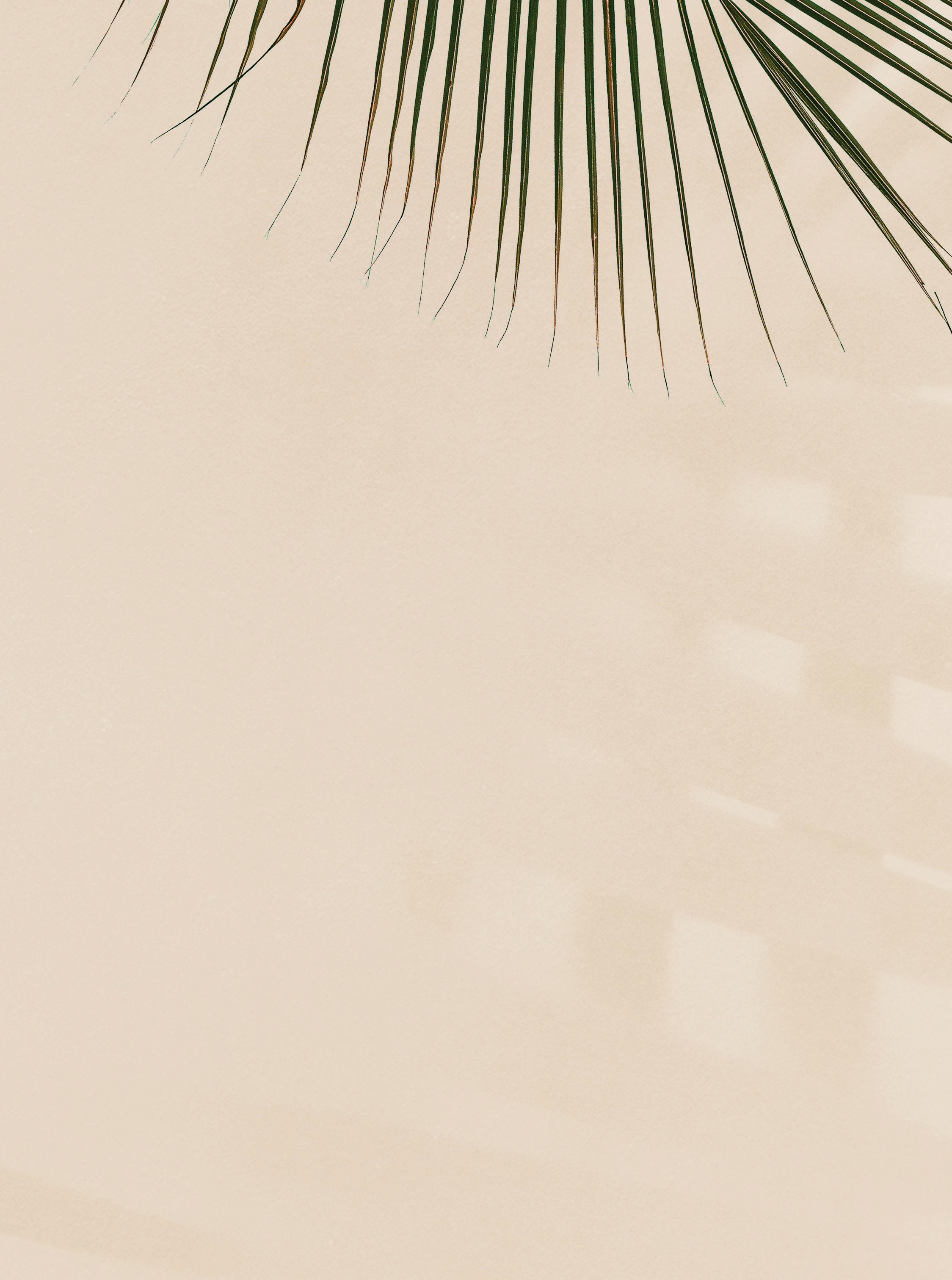
Swap heavy creams for lightweight gel moisturizers or hydrating serums. In summer, your skin needs water, not oil. Star ingredients include:
- Hyaluronic acid: Draws moisture into the skin without heaviness.
- Panthenol (Vitamin B5): Hydrates and repairs the skin barrier.
- Niacinamide (Vitamin B3): Balances oil, brightens, and strengthens.
Expert hack: Apply on damp skin to lock in hydration more effectively.
This one’s obvious—but deserves a bold headline anyway. Daily SPF is your best anti-aging product. Use at least SPF 30, and reapply every 2 hours, especially if you're swimming or sweating. Look for:
- Zinc oxide or titanium dioxide (mineral filters): Great for sensitive skin.
- Antioxidant-infused SPFs: Extra protection from free radicals.
Bonus: Use a tinted sunscreen with iron oxides for added defense against visible light (and yes, your phone screen counts-it is called blue light!).
Your skin is inflamed and needs cooling. Reach for:
- Aloe vera gel: Nature’s original after-sun remedy.
- Thermal water sprays: Great for cooling and reducing redness. Keep them cool.
- Calamine lotion: If itching is intense
Avoid: Alcohol-based products, acids (like AHAs or BHAs), and harsh scrubs. They’ll just make things worse.
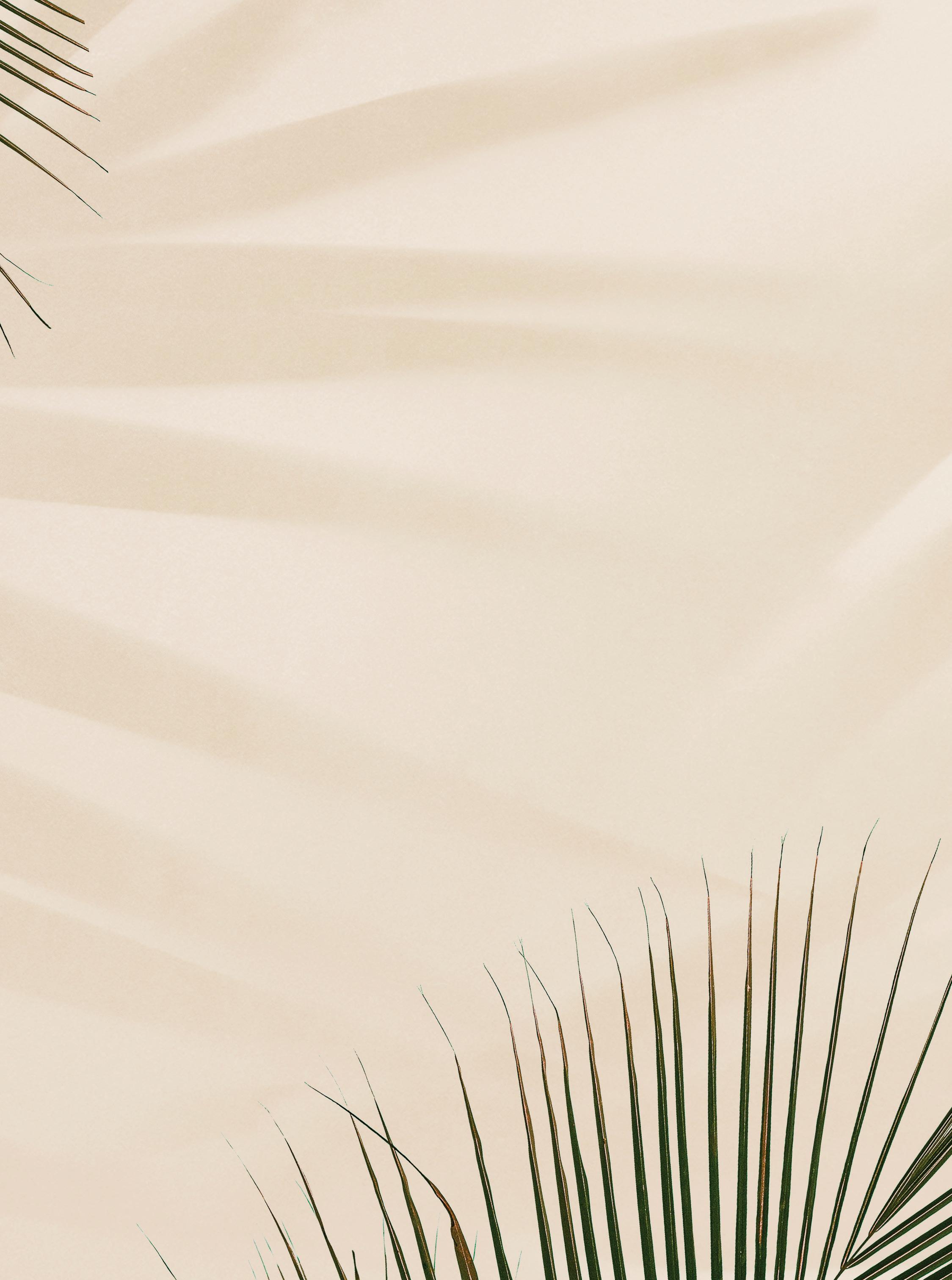
Sun-damaged skin has a compromised moisture barrier. Help it heal with:
- Ceramides: Reinforce the skin's lipid layer.
- Madecassoside: Derived from Centella, it's excellent for calming and healing.
- Squalane: Lightweight, non-comedogenic oil that nourishes and restores.
My night care hack: I use a richer, restorative moisturizer in the evening while your skin regenerates.
If you’ve ended up with sunspots or uneven tone post-burn, don’t rush it. Start using gentle brightening ingredients after your skin has fully healed:
- Azelaic acid: Calms redness and fades pigmentation.
- Vitamin C (L-ascorbic acid or derivatives): Protects, brightens, and boosts collagen.
- Licorice root extract: Soothes while gently evening out skin tone.
Consistency is key: Pigmentation won't vanish overnight, but gentle, daily use will yield visible improvements.
Have fun, enjoy the sun-but with care
Yours:
Barbara Schwarz
Olive&Oliva Natural Skincare


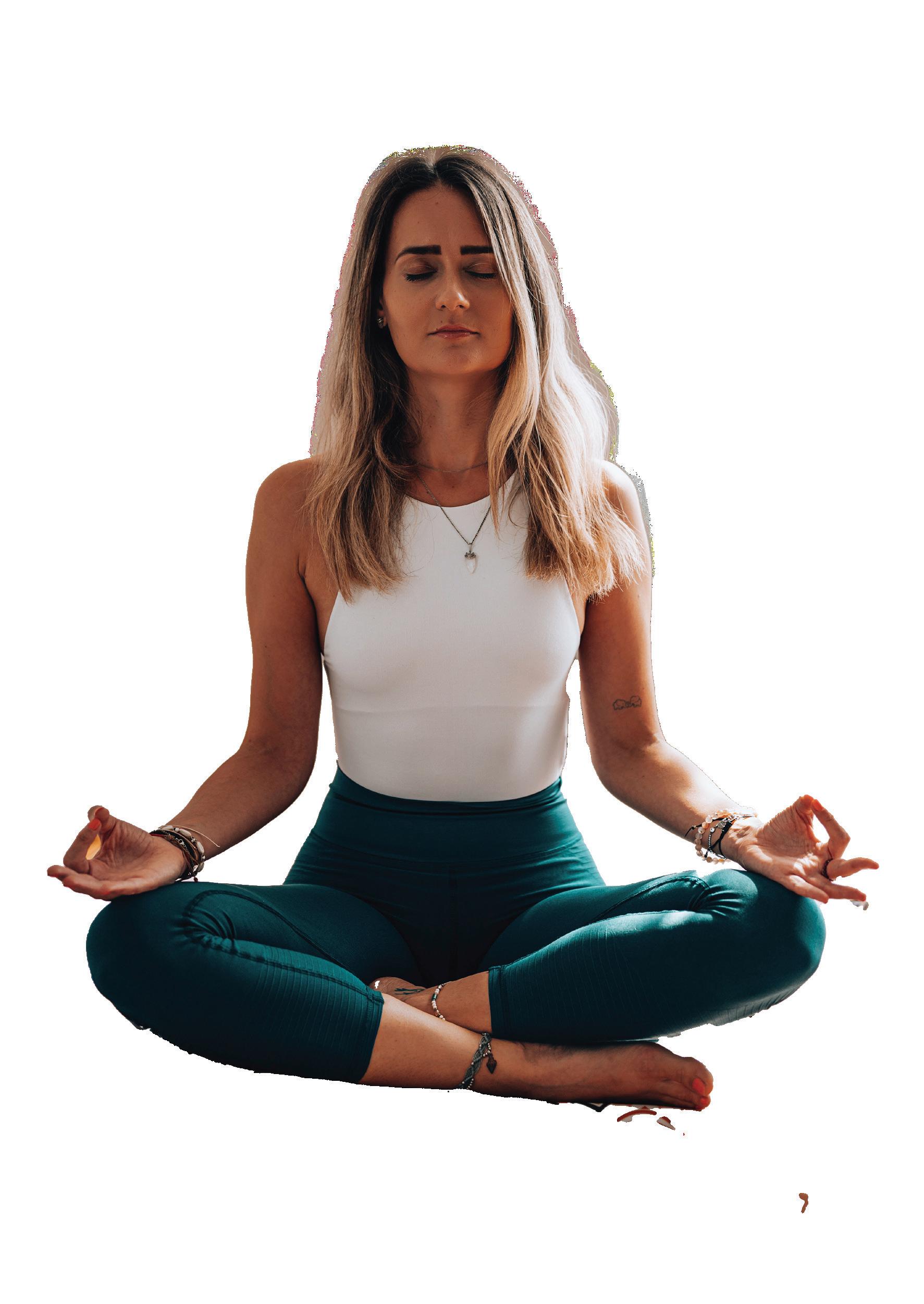
For those who haven’t met you yet: who is Anja Emersic?
I’m a born and raised Slovenian, but I see myself as a global citizen, having spent most of my adult life living and working abroad. I have a background in economics and international management, and I’ve worked in international marketing for the past 8 years. In recent years, I’ve followed my passion into the world of personal growth, yoga, and well-being.
I’m one of the few international and English-speaking facilitators of the Leela Game, and in yoga, I mainly focus on hormonal yoga, a powerful practice that supports women’s health. Beyond work, I cherish the many other roles in my life; being an auntie to a wonderful almost 3-yearold boy, a partner, sister, daughter, friend, and very soon stepping into the new adventure of motherhood.
Out of the three fields you’re active in – yoga, marketing, and Leela Game – where is your main focus today, and why?
Meet Anja Emersic: a true global citizen, transformational game facilitator, marketing expert, and yoga teacher (Anja's Yoga Corner), who’s redefining what it means to blend business with purpose. Raised in Slovenia and shaped by over a decade of international experiences, Anja is a rare voice bringing ancient wisdom to modern leadership through the Leela Game and hormonal yoga. As she steps into motherhood, she shares how clarity, connection, and conscious living are at the heart of her work and life.
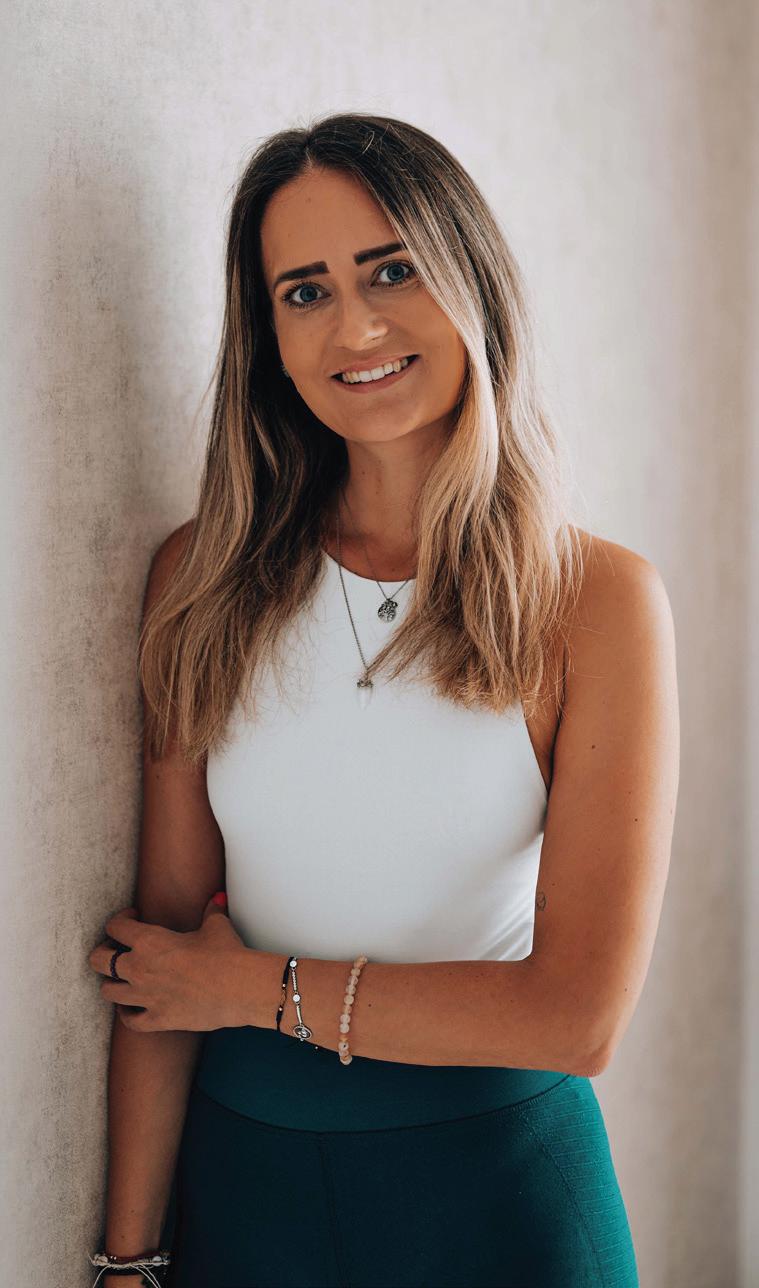
Right now, all three fields are still very connected for me, and I enjoy having this variety, as it helps me grow in different ways. But if I had to highlight one, it would be the Leela Game. It’s something quite new in the Western world, and I really enjoy being one of the first people introducing it here.
The Leela Game is a self-reflection and personal growth tool based on ancient wisdom that helps people better understand themselves and their life direction. Transformational games like this are already very well known in countries of the former Soviet Union, so much so that being a transformational game host became an official profession there in 2021. Together with the international community of transformational game facilitators called InFlowGames, we’re working to spread awareness and bring these powerful tools to the Western world. We see ourselves as pioneers in this area and are especially focused on building trust and making these self-development tools more accessible to everyone.
You've lived and worked in different countries and are still crossing borders regularly –including your visits to Graz for our Women & Business Brunches. How have your international experiences shaped your mindset and professional path?
I honestly believe that my international experiences have shaped me into the person I am today. I would probably be a completely different person without them. Living abroad for 11 years
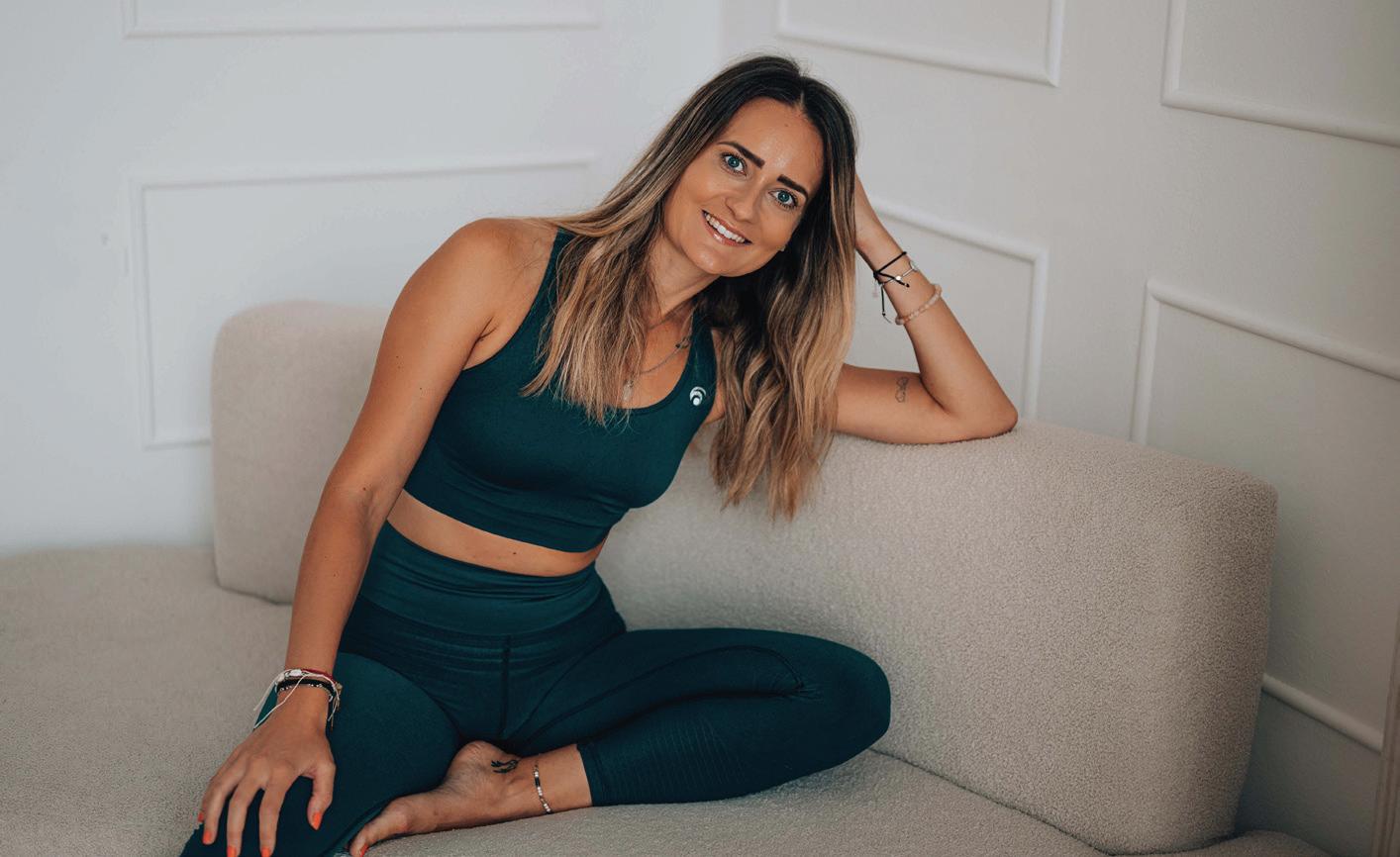
and traveling a lot has made me more open, curious, and brave when it comes to stepping outside of my comfort zone.
The people I met and the experiences I had along the way have influenced me both personally and professionally. For example, I discovered the Leela Game during a trip to Bali. If I hadn’t taken that trip, I probably never would have even heard of it, let alone become a host myself. The same goes for many other areas of my life. These experiences have truly broadened my horizons in a way that staying in one place never could.
Many of our readers are curious about tools that support both personal and professional growth. Where do you see the connection between the Leela Game and business or leadership development?
The Leela Game helps people understand themselves better; how they think, react, and make decisions. In business or leadership, this is really important. When you become more aware of your patterns and beliefs,
you can lead with more confidence, make clearer decisions, and communicate better with others. People also often come to the Leela Game when they’re struggling with their career or feeling unsure about what direction to take; whether to stay in their job, make a change, or start something on their own. It’s really interesting how, after playing, most of them leave with a clearer idea of what to do next. One of my favorite examples is a group session where two clients were unsure about their next steps, and within a month from playing, both of them received job offers for positions they genuinely wanted and loved.
You also teach hormonal yoga. Why is it so special? How can it help women?
Out of all the yoga styles I teach, I have been mainly focusing on hormonal yoga, as it is such a unique and helpful practice for women. Hormonal yoga is a gentle, natural method designed to support and balance the female hormonal system.
It’s especially helpful for women experiencing issues like PMS, irregular cycles, menopause symptoms, fertility challenges, or any other hormonal imbalances.
I find it very beneficial because when there is a hormonal imbalance, the quality of life can be greatly affected. Bringing the hormones back into balance can help reestablish overall harmony in the body and significantly improve one’s well-being and daily life.
You’re entering an exciting new chapter in your life. How do you envision this upcoming phase influencing your work and your priorities?
Yes, my life is about to change a lot very soon, and I definitely want to take some time off to focus fully on my baby and adjust to this new role. Right now, it’s hard for me to predict exactly how this transition will go, as I think motherhood is such a personal and unpredictable journey.
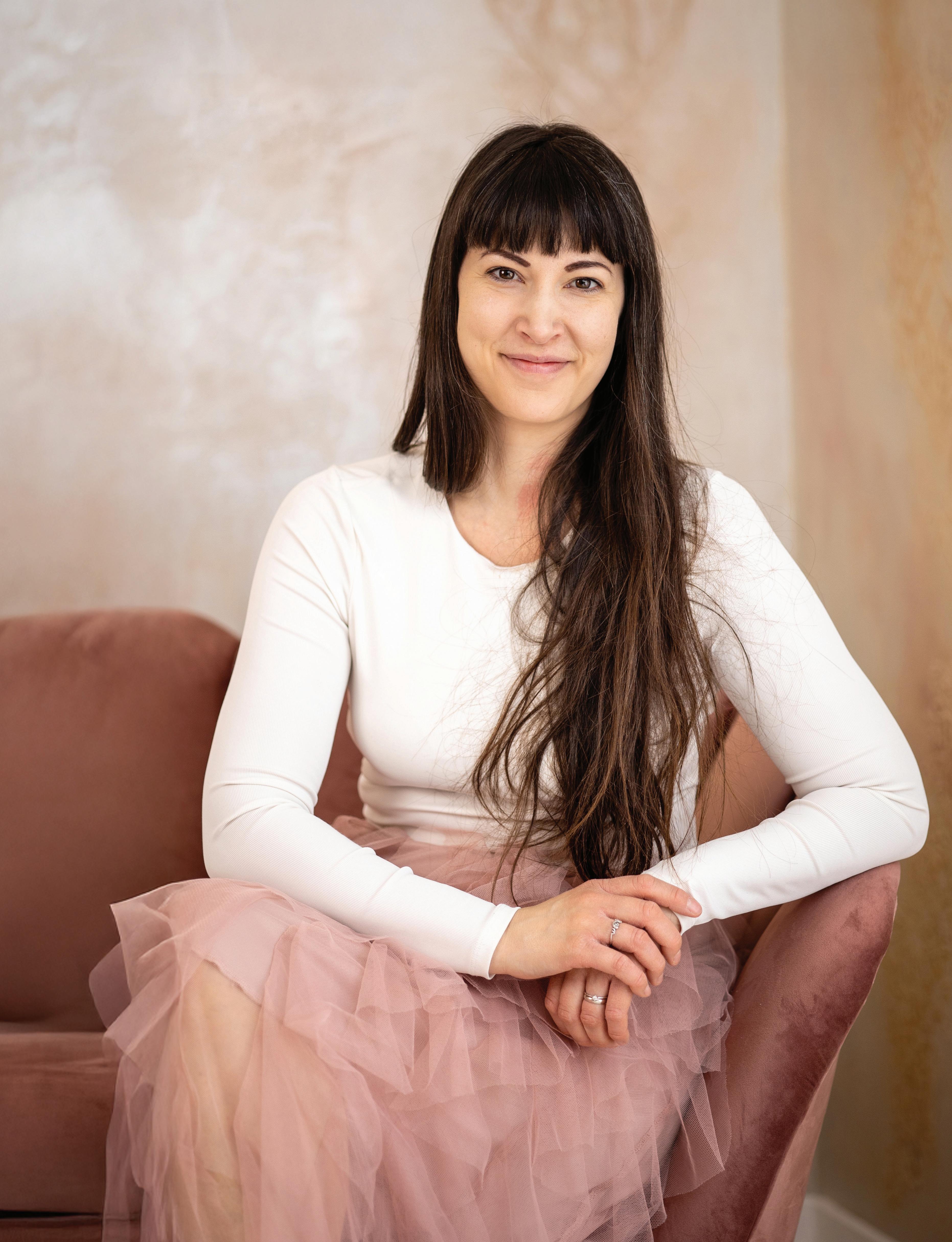
Linda Szijjártó
Returning to work after time spent at home with children is a complex transition marked by emotional, professional, and logistical challenges. It’s a phase that benefits from preparation — not only on the parent’s side but also from employers. A better understanding of the obstacles involved can make this transition smoother and more transparent.
To support this understanding, I conducted a scientific study in 2024 focused on the challenges parents face when reentering the workforce after parental leave, based on a Hungarian sample.
A total of 1,398 participants (1,394 women and 4 men) took part in the study. All had spent a period of time on parental leave and had since returned to work. Among them, 85% held a university degree, 64% were employed in the private sector, and 75% worked in non-leadership roles.
The most significant concerns expressed by parents before returning were the difficulty of balancing work and family life, a perceived lack of professional readiness, and the fear of being seen as less desirable candidates due to their parental status.
Despite these concerns, the data shows that mothers remained strongly connected to their professional identity during their time at home:
• 78% maintained contact with their field,
• 66% stayed in touch with their managers and colleagues,
• 39% pursued some form of professional development.
While financial reasons were cited as the primary motivation for returning to work, professional ambition also played a key role. The second most common reason given was the desire for career growth. Motivation remained important after reentry as well: 55% of parents reported planning to advance in their careers.
The research found that 75% of participants viewed hybrid work (a mix of in-office and remote work) as the most suitable arrangement. Career-related decisions made during the transition were also revealing:
• One in three mothers changed employers for better work–life balance,
• 29% accepted less inspiring jobs,
• 29% changed roles,
• 23% stepped down from a previous position due to the demands of parenting.
Notably, 64% of participants had at least one negative experience upon returning to work:
• 33% felt their career progression was hindered,
• 24% felt they were treated as less competent,
• 20% encountered negative comments related to their role as parents.
The most frequently cited barriers to a smooth return were the challenges of caring for sick children (81%) and managing the daily logistics of parenting (69%).
These findings offer a clear picture of the situation parents face in Hungary as they return to the workforce — and draw attention to the real-world difficulties that define this life phase. The data highlights the importance of recognizing this transition as both a sensitive and significant career turning point. It is not only an individual challenge, but also a shift that impacts families and employers.
Parents returning to work represent a valuable group of employees, bringing unique skills shaped by their parental experiences. Whether we can tap into their potential for common growth depends largely on how consciously we address their needs and obstacles — as parents, and as organizations.
Linda Szijjártó, PhD. Work And Organizational Psychologist, Founder of Mindsetland
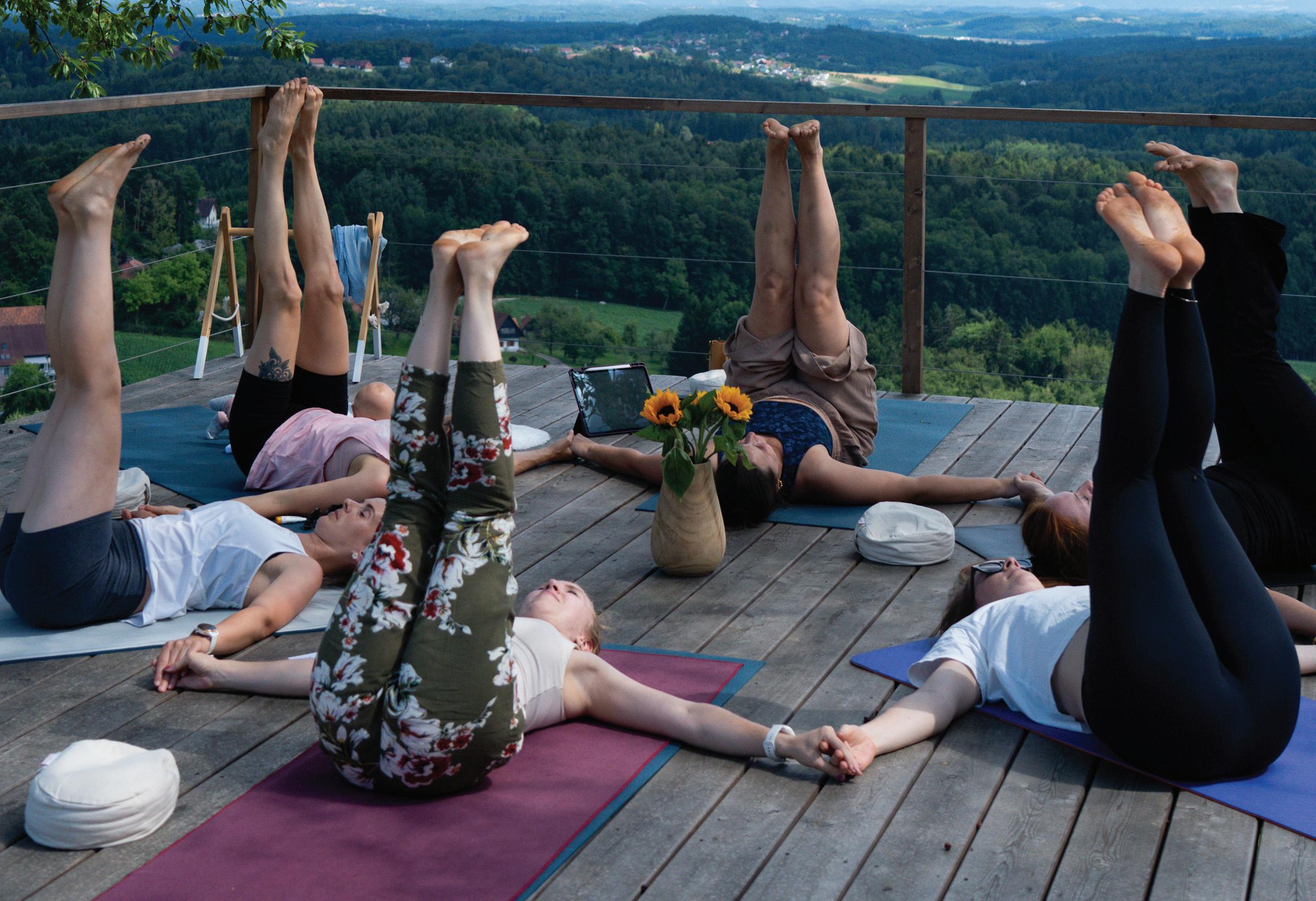
Set in the heart of the picturesque vineyard region of Stainz, the Mama Retreat offered a truly nourishing experience — a full-day escape curated by mamas, for mamas. Surrounded by the serene beauty of Steiermark’s rolling hills, the venue itself brought an immediate sense of calm and restoration.
The retreat began with gentle Pilates led by Michaela Majcan of Core & Soul Pilates, easing participants into their bodies and helping them step away from their mental to-do lists. With focus on breath, alignment, and awareness, the mamas reconnected with themselves and set an intentional tone for the day.
In a powerful session on self-care, Doula Elisabeth Zipfel reminded everyone that caring for ourselves is not a luxury — it's a necessity. Her warm guidance invited the group to rethink priorities and honour the self amidst the constant giving that motherhood demands.
The afternoon unfolded with a beautiful self-expression art therapy session by Nicole Monsanto-Tögl of MuKi-Monti, where participants explored the theme of self-love through intuitive painting and quiet reflection. It was a chance to turn inward — a pause that many mothers rarely get — and to remember that nurturing ourselves is an essential part of nurturing others.
The day concluded with a flowing yoga practice led by Stefanie Anetter from Underground Yoga , culminating in a breathtaking Human Mandala. Through gentle movement and group meditation, the mamas moved in harmony, embodying the unity and grace that defines the shared experience of motherhood.
Throughout the day, soulful vegetarian food and refreshing drinks were served, perfectly complementing the nourishment offered to the mind, body, and spirit.
More than just a retreat, it was a day of reconnection — with oneself, with nature, and with a like-minded community of women. The mamas left feeling lighter, grounded, and filled with a renewed sense of self-love.
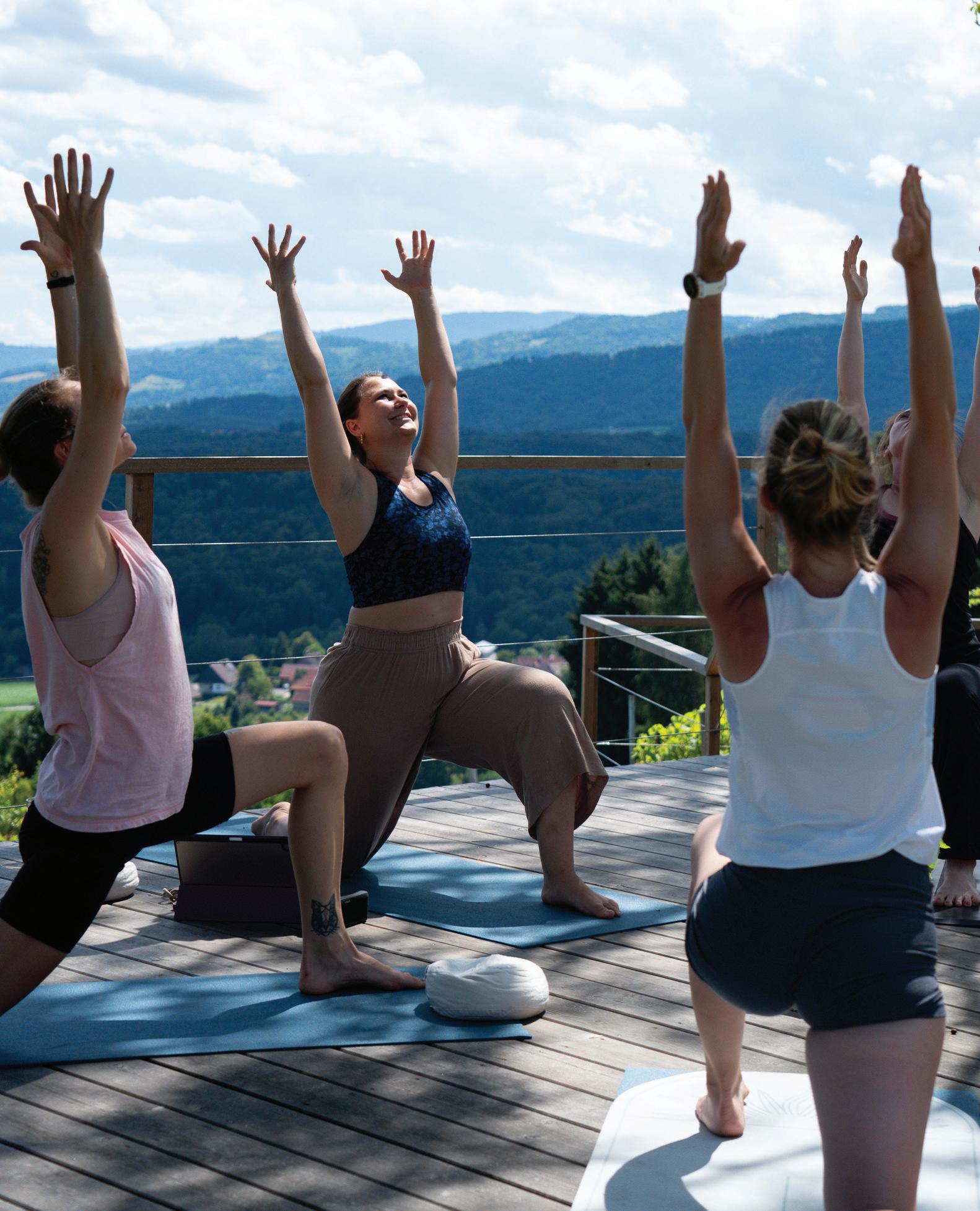
If this retreat sparked something in you — a longing to slow down, reconnect, and be truly seen — we warmly invite you to join us for the next Mama Retreat this autumn.
Our upcoming gathering is set for September 20, 2025, once again in the peaceful vineyards of Stainz, from 9:00 to 16:30. Expect the same soulful atmosphere, nourishing experiences, and genuine connection with other mamas on the journey.
Whether you’re expecting, in the midst of early motherhood, or simply needing space to breathe, this retreat is your invitation to pause and pour some love back into yourself.
Spots are limited and tend to fill quickly — we encourage you to join and secure your place. Visit www.mama-retreat-steiermark.at or email us at info@mama-retreat-steiermark.at — we can’t wait to welcome you.
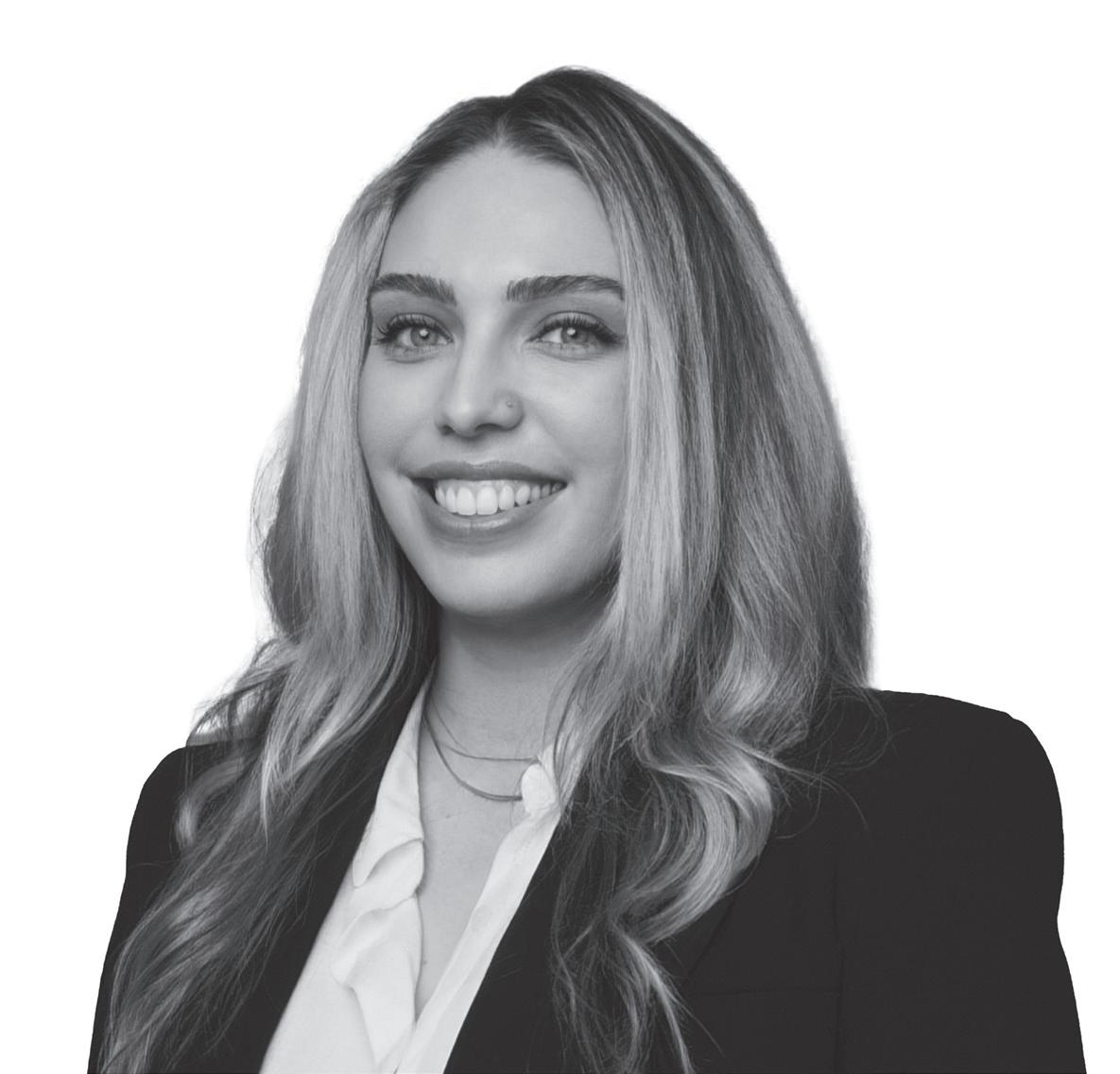
Skyla Nouri didn’t plan on a career in business management — but she quickly discovered a niche where her sharp mind and people-first approach could thrive.
In this interview, she talks about breaking into the industry, navigating the challenges of being a woman in leadership, and the financial strategies that help her A-list clients stay grounded through Hollywood’s ups and downs.
What inspired you to pursue a career in business management, and how did you break into the industry?
I was a Radio-Television-Film major at The University of Texas at Austin, but back then, I had no idea business management even existed or that this could be a career. After moving back to Los Angeles after college, my boyfriend (now husband) was helping with the job search. He found a job posting for an assistant at a business management firm. I took the interview without knowing a lot about it and was surprised to learn about this niche industry within the entertainment world. I couldn’t have dreamed up a more perfect career, blending my type-A, detailoriented mind, with my people-focused social skills.
During tax season, what are the key financial strategies you focus on for your A-list clients?
The difference between an accountant and a business manager is that by the time tax season rolls around, we should already have a decent picture of where things stand. Because we are the ones initiating every payment, tracking every deposit, on a day-to-day, real-time basis, we can adjust throughout the year and formulate a plan to put our clients in a fantastic position come tax season.
What are some of the biggest challenges you’ve faced as a woman in this field, and how have you overcome them?
A big hurdle in the business management industry has been a lack of female presence in leadership roles. Although I have been very fortunate to have a lot of amazing male bosses, mentors, and counterparts over the years, it can be disheartening and discouraging when there are very few women at the top. With unconscious biases at play, it can feel like the cards are stacked against you. To counter that, I have focused on letting my work speak for itself. As cliché as it sounds, work hard, be efficient, stand your ground, take feedback and make improvements. Exceptional results are hard to argue with.
What advice do you have for young women looking to enter the business management industry?
This is a wonderful industry that absolutely benefits from a diverse perspective. We need more women and minorities in business management! I would suggest applying to boutique firms where you can see a wide range of work in a more intimate setting. I started as an executive assistant at a small firm and was able to contend with the duties of that role while also learning everything about business management.
What common financial mistakes do people make, and what advice would you give to help them better manage their finances?
T here are many ups and downs in the entertainment industry, and nothing is ever guaranteed. When a client lands a great opportunity, that is the best time to structure saving and healthy spending habits. It can look attractive to purchase a property, pay off debt, help family members, all at once when the money initially comes in. We want to understand what is most important to our clients and make that happen. We also want to make sure they are set up for the future in hard times, like the recent union strikes. We work together to get them to their goals while making sure they have something to fall back on. TLDR: Stick to realistic parameters on spending and be patient (if you can) with big purchases or investments.
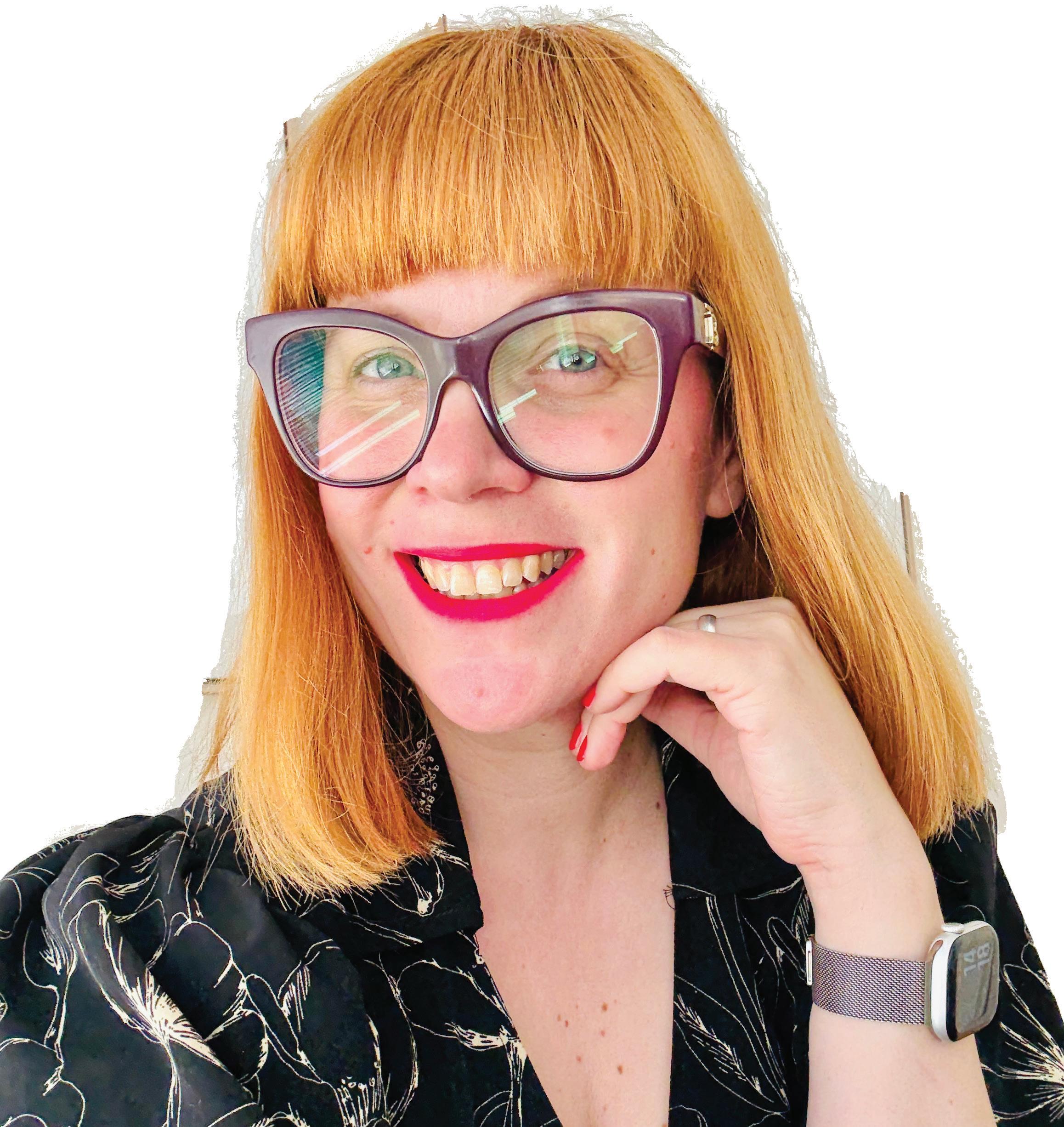
FINDING JOY IN A NEW CAREER WITHOUT LETTING GO OF YOUR OWN BUSINESS
Inever thought I’d take a job again.
For over two decades, I’ve been the heartbeat behind my own business — building a luxury photography brand, co-founding Women & Business Magazine, and crafting spaces for female entrepreneurs to thrive. I poured my soul into every shoot, every event, every creative detail. My studio in Los Gatos has been more than a business — it’s been my identity, my sanctuary, my statement.
And yet, a few weeks ago, I started something entirely new.
I stepped into the role of Marketing & Community Outreach Manager at a therapy clinic here in California. It was unexpected, exhilarating — and if I’m honest, a little humbling. Not because I didn’t feel qualified. But because I’d spent so many years building my dream that I hadn’t realized how much I needed a fresh one.
So many women in business feel we have to choose: our company or a job. Freedom or structure. Entrepreneur or employee. But what if it’s not a binary?
What I’ve learned in just a few short weeks is that joy can come from expansion — not replacement.
I still run my studio. I still photograph powerhouse women and passionate creatives. But I also now get to use my marketing brain every single day in a totally different environment. I get to be part of a team that is helping people heal, and I’m using my skills to amplify that impact.
It turns out, showing up to support a cause I believe in doesn’t mean stepping away from my business. It means I get to contribute to two missions I care deeply about.
One of the most unexpected gifts of this transition has been the people. After years of solo decisionmaking and client-centered work, joining a collaborative team felt like slipping into a warm bath. Ideas bounce, laughter flows, and we build together.
In my studio, I’m the leader. At the clinic, I’m the learner — and I love it.
There’s something freeing about not having to hold everything alone. And I’ve found that the creative energy from one role spills over into the other. My photography feels more inspired. My branding voice feels more rooted. I’m sharper, clearer, more grounded.
Sometimes we forget that we’re allowed to evolve.
We outgrow the way we’ve done things. We crave connection, novelty, stability—or even just the satisfaction of being part of something larger than ourselves. That doesn’t mean we’ve failed at entrepreneurship. It just means we’re human.
Taking this job reminded me that we can be multi-passionate and multi-dimensional. We can love what we’ve built and explore what else we’re capable of.
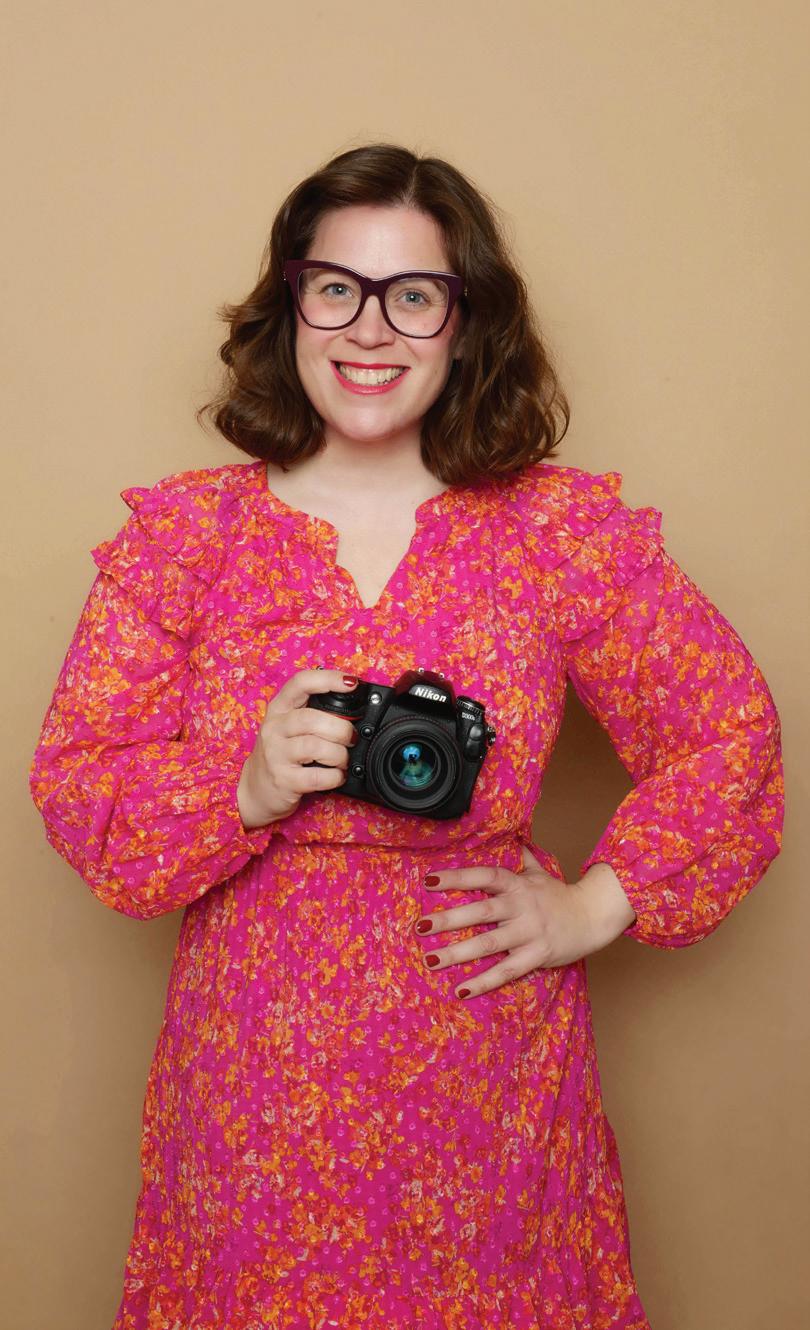
If you’re toying with the idea of taking on a new role while running your own business, ask yourself:
Does this job align with my values?
Will I still have space for my creative work?
Am I excited about the team, the mission, the energy?
Will it help me grow in ways my business currently doesn’t?
If the answer is yes — even with a little fear — then it might just be the beginning of a beautiful new chapter.
My life now is a bit fuller, a bit messier, and a whole lot more joyful.
I walk into therapy team meetings and feel like my ideas matter. I walk into my studio and feel like my soul lights up. I’m using everything I’ve learned as an entrepreneur to uplift another organization, and in return, I’m receiving community, structure, and a deep sense of belonging.
So no, I didn’t give up my business.
I gave myself permission to grow.
And joy followed me right in.
Anna Kirschner is a luxury brand photographer, creative director, and co-founder of Women & Business Magazine. She is also the Marketing & Community Outreach Manager for a therapy clinic in California. You can find her work at kirschnerstudios.myportfolio.com

I have felt completely misunderstood most of my life.
As a child, I often felt like I was not good enough. At school, we were expected to do well at every subject, even the ones completely irrelevant today or outside of my interests. I was bullied for fighting bullies, and then I was bullied by teachers for fighting a system that did not make any sense to me. I had learning difficulties that were never properly addressed; I was sensitive, ambitious, and stubbornly driven by something deeper than grades or my teachers’ opinions: I wanted meaning, freedom, and impact. These experiences led me to try to prove my right to exist, question my own worth, and wonder where I truly fit in.
That emotional hunger eventually became my life’s compass.
What started as a personal mission — to build a life on my own terms and fulfil my hunger for valuable knowledge and real-life experiences — turned into a movement. I founded The Bright Academy in 2020 to create the kind of learning platform I wish I’d had growing up: one that teaches real-life skills, self-awareness, and up-to-date digital know-how — taught by people who lead by good example.
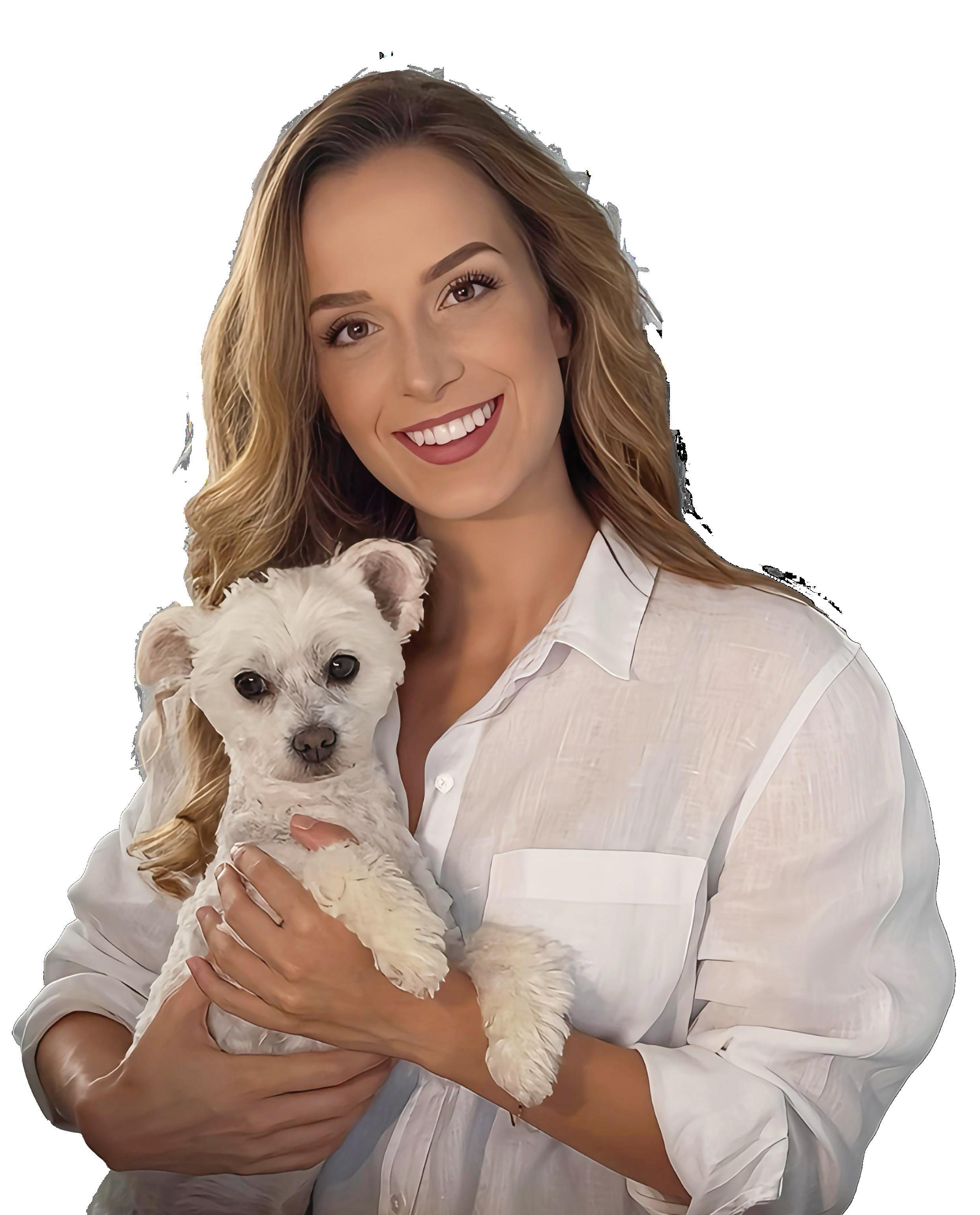
Liberation and evolution through education, self-awareness and AI. The Bright Academy is here to build a happier, more intentional, and more successful Hungary — before we take on the world.
Our core-values:
We have a saying about Hungarians (yes, that includes ourselves): “a typical Hungarian.” We’ve often used this phrase to describe someone negative, ungrateful, mean, and jealous — a person with a scarcity mindset. The kind who, as we say: “if their cow dies, wants their neighbor’s cow to die too.”
We still use this expression today.
My question is: who will change this narrative? How do we transform it into something we actually want to experience?
It feels good to say, “We are the ones who can change it, and the time is now.” But the real work starts when we also create a roadmap, practical tools, and a supportive system that can guide people in this direction — and make real change possible for the masses.
So how do we begin to take on such a gigantic project — to figure out what is needed in our modern world, how to share knowledge in a way that truly helps people, and how to work together to create real impact?
Step 1. - Listen to your people and learn the problem.
1.1. Only 23% of people worldwide feel engaged at work, costing the global economy an estimated $8.9 trillion each year in lost productivity.
Imagine going into your workplace and hating what you do. Or not knowing why you’re there, how it matters, or what goal you’re even working toward. Many might not be conscious of it, but I believe it crushes the soul bit by bit.
What does this mean to me? Self-awareness needs to be an essential part of our education and work-related training.
1.2. Over 10,000 people completed our free “Find Your Path” test in the past three years. Since the test is available on multiple pages, the participants formed a very diverse pool, providing us with a reliable 400,000 data points to analyze and summarize:
58 % 35 % 34 % 56 %
want to work remotely, only 6% would choose a traditional corporate office job.
would prefer freelancing or entrepreneurship — showing a clear desire for flexibility and independence.
What is your preferred work environment?
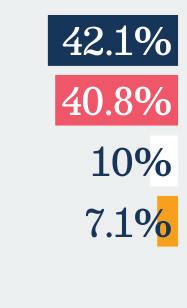
What are you striving for?
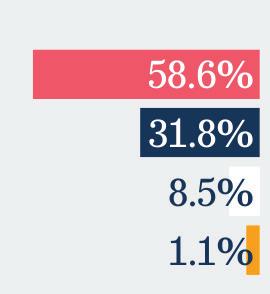
don’t feel confident in their CV. believe they wouldn’t even have a chance at a job interview — highlighting deep self-confidence issues.
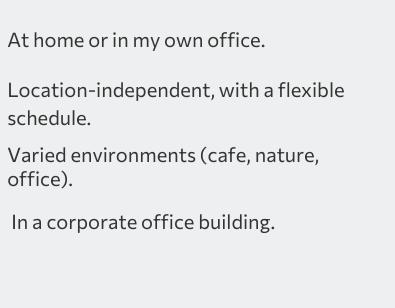
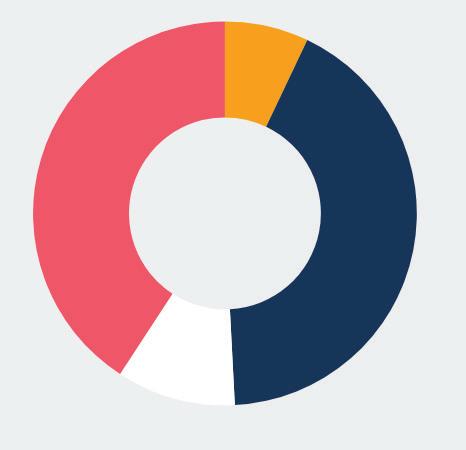


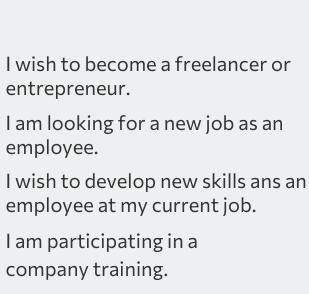
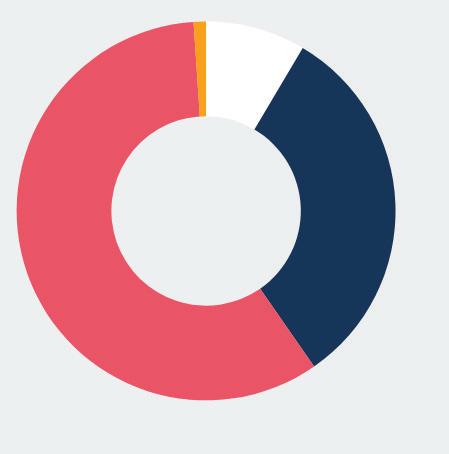

That’s not just a market issue — that’s a self-confidence issue. It reflects a much deeper wound in how people see their own value.
On top of that, 33% of respondents don’t speak any English. That’s not only a barrier on the job market, it limits access to global, unbiased information and learning opportunities.
Strength-focused self-discovery and support for career preparation need to be accessible to more people.
Sufficient English learning opportunities. (I wish we didn’t translate every tv show to Hungarian… let’s start a movement there too.)
Furthermore, flexibility and remote job opportunities are major motivators today corporations need to pay attention to.
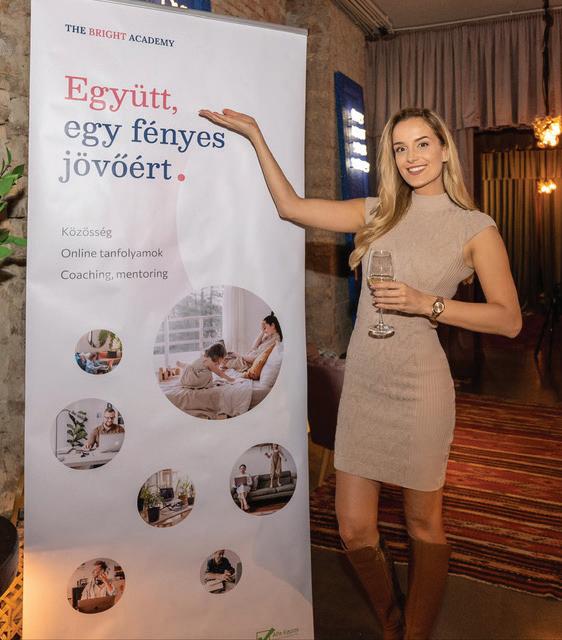
1.3. What I can’t leave out of this equation is AI, so here are some relevant stats on the status quo:
Hungary is falling behind in AI adoption.
Only 1 in 10 companies use AI (vs. 1 in 3 in the EU average).
Hungary ranks 24th out of 27 EU countries in digital readiness.
Over 70% of Hungarian employees have never received AI or digital upskilling training.
Around 300,000 Hungarian jobs (mostly in admin, customer service, and content creation) could be automated in the next 3–5 years.
I believe Hungarians are resourceful and smart enough to catch up — that’s exactly why I’m building The Bright Academy: to empower individuals with the right knowledge, community, and mindset shift so Hungary can truly thrive.
To date, more than 20,000 learners have joined us. We’ve helped career switchers find their paths, mothers return to the workforce, digital nomads launch careers, and everyday professionals learn skills that traditional schooling missed. We fill the gap with courses on selfawareness and teach English to people at different learning stages. We’ve supported several charities, organized fundraisers, and launched free programs for those with fewer opportunities.
And there’s much more ahead:
AI presents an opportunity for Hungary (and individuals) to catch up, and The Bright Academy is on the front line supporting this cause.
This year, we’re integrating AI into both how we teach and what we teach. In our methods, we’re introducing AI-powered learning tools; in our curriculum, we’re developing practical AI training tailored to real-world applications. Our goal is to equip people not only to survive in a changing market but to thrive and feel liberated.
By combining self-awareness talent- and strengthfocused digital skills and AI literacy, we help people become not only more effective but also more fulfilled — focusing on what only humans can do: lead with intuition, connect deeply, and create with higher purpose.
We see a future where Hungarian professionals aren’t left behind but are part of this new and exciting wave. And we’re working the roadmap, tools, and community to make that future a reality.
But we can’t do this alone.
We need to partner with companies, schools, and public institutions to integrate self-awareness, human skills, and AI literacy into both workplace and education systems. For this, we need to train and work with leaders willing to evolve.
This isn’t just a tech shift; it’s a cultural one.
At The Bright Academy, we’re here to connect the dots and build the bridges — so no one is left behind.
Some of the areas where I see real, tangible opportunity:
AI lets us reskill in months, not years, closing the skill gap traditional education left behind. At The Bright Academy, we’re already building this with an adaptive learning platform: after filling out a test, each student receives a personalized learning path in their own dashboard.
AI empowers remote and freelance work, creating real, location-independent career paths. We focus exclusively on teaching roles that can be done from anywhere — Helping Hungarians work remotely for international companies — earning higher foreign wages while living at home — which strengthens the Hungarian economy from within.
3.
AI helps businesses without putting more pressure on current staff or needing to expand teams. We offer practical training on launching and scaling with AI, supporting both small businesses and large companies with custom hybrid solutions, including online modules and in-person workshops tailored to each team's needs.
1 . 2 . 4 .
We also address the language barrier, long a major obstacle. With AI-powered translation tools, learners and businesses can now expand globally without perfect English, opening up new clients and partnerships.
5.
AI frees up our time for what truly matters: being human. While AI can write, research, sort, calculate, or schedule, it can’t replace our intuition, compassion or connection. That’s the part I want people to reconnect with. The more tasks we delegate to AI, the more we can focus on what on what truly matters. Don’t waste your lifetime doing work a robot could do.
Yes, AI helps create space to focus on what truly matters. But the goal is not only to save time and other relevant resources, but to reinvest them consciously. This is how we circle back to self-awareness as the foundation of this initiative. 37
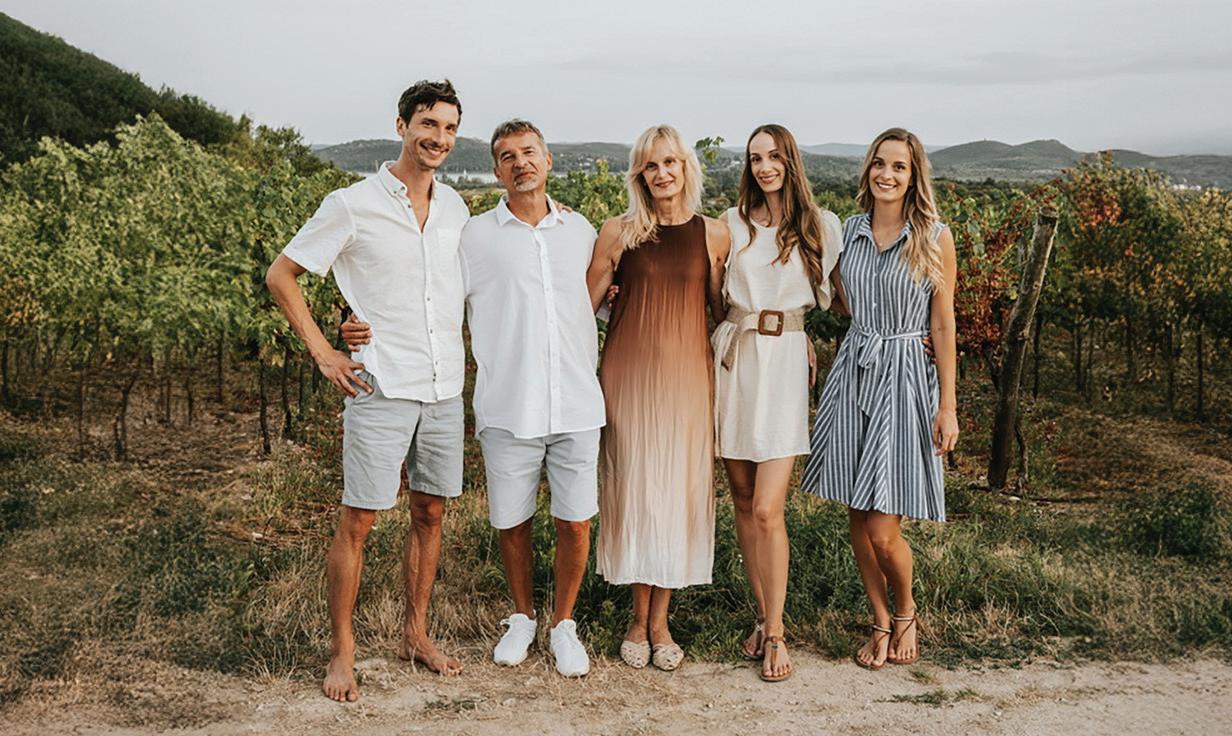
While I haven’t had the chance to start my own family yet, I’ve been able to learn life’s biggest lessons through my siblings, parents, friends, romantic relatioships and colleagues. Connection is what I longed for as a child, and it’s what I cherish most today.
Taking care of my mind, body, and soul. For me, that means meditation, spending time in nature, therapy, working out, eating (mostly) clean, avoiding alcohol, and staying curious through constant learning, reading, and writing. Beyond all of this, I also want to put more intention into nurturing my connections: Our family has been one of my greatest teachers in life. We've faced serious challenges, from poverty to sickness. We hurt each other when we didn’t know better and had to ask for forgiveness many times. We have our differences, and conflicts still arise — but I’ve come to realize that this is one of life’s greatest opportunities. Sometimes the lesson is to walk away; other times, it’s to stay and work through things — to be brave, overcome our egos and level up together.
Whichever path brings peace to your heart — that’s your truth.
When I focus on others’ shortcomings, I might feel justified, but I also feel lonely and disconnected. That’s how I know I’m off track. And that’s a big price to pay.
Even though it’s easiest to blame others in those moments, I try to remind myself — again and again — to return to the arena and do my best to choose love over fear. Every time, I come out wiser and stronger.
I’m happy to see my family members there with me today. I used to pray for this. Because at the end of the day, it's the people who accept us with our flaws. I have them to thank for teaching me how to move toward acceptance of them, of the past, and through that, slowly but surely of myself. These opportunities are teaching me how to practice mercy and love. Because love is a verb. It’s something we have the chanche to cultivate, especially when it’s hard.
I believe that’s why we’re here.
With infinite faith in You,
Lilla
Meister is the home of MeisterTask and MindMeister: where work management meets simplicity.
Meister is the home of MeisterTask and MindMeister: where work management meets simplicity.
Meister is the home of MeisterTask and MindMeister: where work management meets simplicity.
Meister is the home of MeisterTask and MindMeister: where work management meets simplicity.
Meister is the home of MeisterTask and MindMeister: where work management meets simplicity.
Meister is the home of MeisterTask and MindMeister: where work management meets simplicity.
It’s our mission to help teams across multiple industries plan and organize their work with confidence – regardless of their technical experience. With our tools, team members can navigate through their tasks efficiently for a better workday, every day.
Meister is the home of MeisterTask and MindMeister: where work management meets simplicity.
It’s our mission to help teams across multiple industries plan and organize their work with confidence – regardless of their technical experience. With our tools, team members can navigate through their tasks efficiently for a better workday, every day.
It’s our mission to help teams across multiple industries plan and organize their work with confidence – regardless of their technical experience. With our tools, team members can navigate through their tasks efficiently for a better workday, every day.
It’s our mission to help teams across multiple industries plan and organize their work with confidence – regardless of their technical experience. With our tools, team members can navigate through their tasks efficiently for a better workday, every day.
Meister is the home of MeisterTask and MindMeister: where work management meets simplicity.
It’s our mission to help teams across multiple industries plan and organize their work with confidence – regardless of their technical experience. With our tools, team members can navigate through their tasks efficiently for a better workday, every day.
It’s our mission to help teams across multiple industries plan and organize their work with confidence – regardless of their technical experience. With our tools, team members can navigate through their tasks efficiently for a better workday, every day.
It’s our mission to help teams across multiple industries plan and organize their work with confidence – regardless of their technical experience. With our tools, team members can navigate through their tasks efficiently for a better workday, every day.
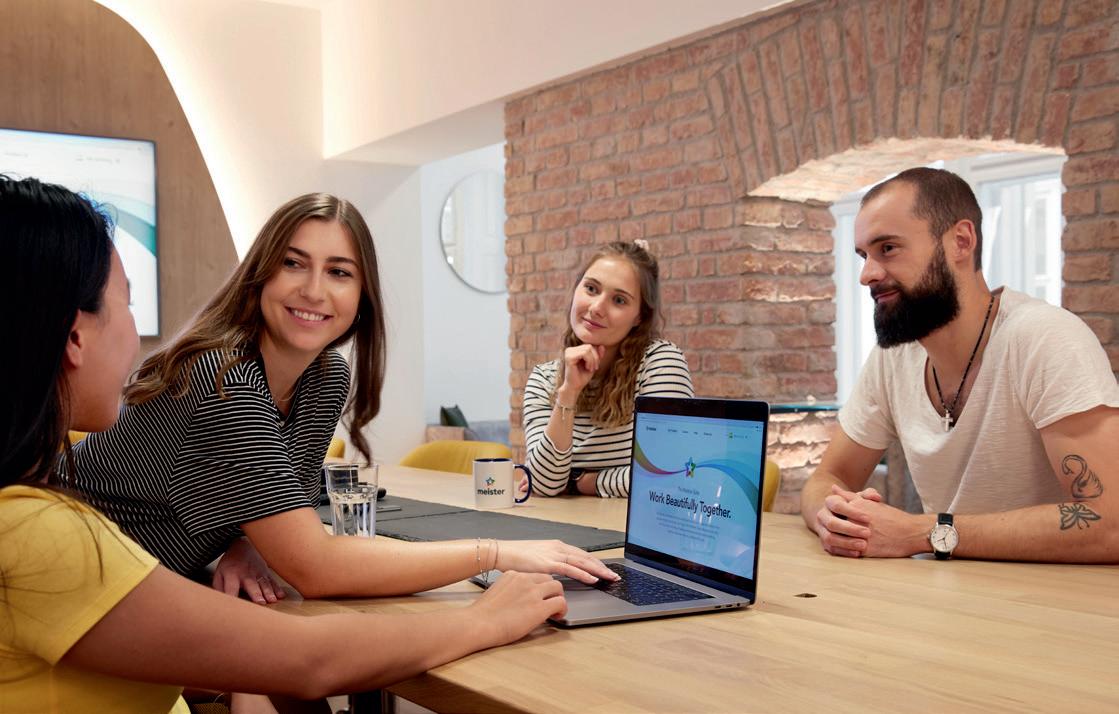







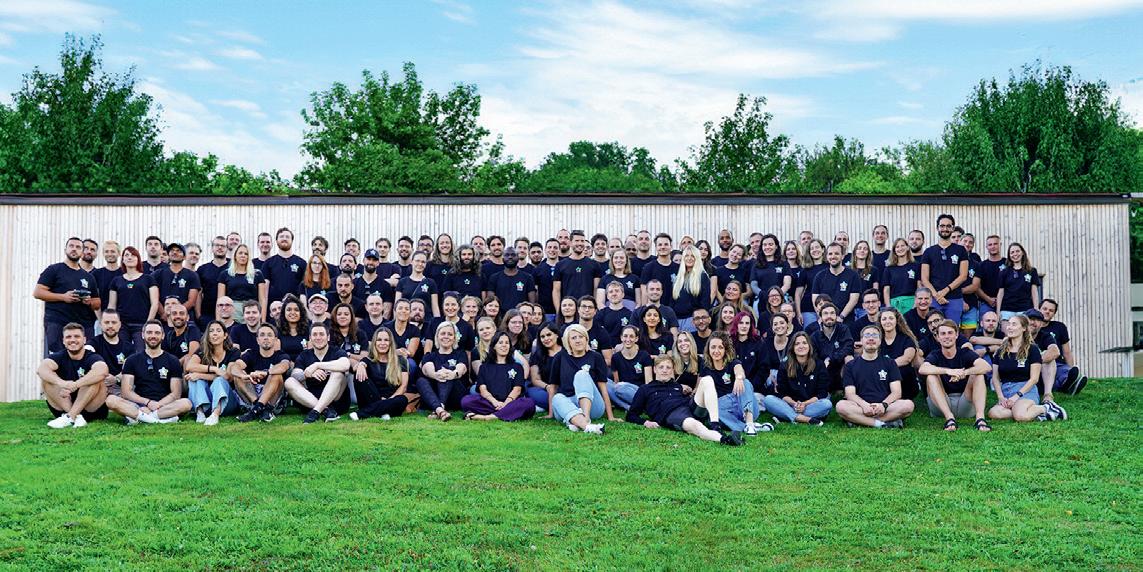







We know that success is not just about the work you do, but how you do it. That’s why we’re committed to creating a rewarding, collaborative environment where every employee can thrive.
We know that success is not just about the work you do, but how you do it. That’s why we’re committed to creating a rewarding, collaborative environment where every employee can thrive.
We know that success is not just about the work you do, but how you do it. That’s why we’re committed to creating a rewarding, collaborative environment where every employee can thrive.
It’s our mission to help teams across multiple industries plan and organize their work with confidence – regardless of their technical experience. With our tools, team members can navigate through their tasks efficiently for a better workday, every day. We know that success is not just about the work you do, but how you do it. That’s why we’re committed to creating a rewarding, collaborative environment where every employee can thrive.
We know that success is not just about the work you do, but how you do it. That’s why we’re committed to creating a rewarding, collaborative environment where every employee can thrive.
We know that success is not just about the work you do, but how you do it. That’s why we’re committed to creating a rewarding, collaborative environment where every employee can thrive.
We know that success is not just about the work you do, but how you do it. That’s why we’re committed to creating a rewarding, collaborative environment where every employee can thrive.
We’re proud of our equitable and vibrant culture, with 45% of our leadership roles held by women. Our diverse team is made up of ~40 different nationalities – and we’re excited for this number to continue to grow.
We’re proud of our equitable and vibrant culture, with 45% of our leadership roles held by women. Our diverse team is made up of ~40 different nationalities – and we’re excited for this number to continue to grow.
We’re proud of our equitable and vibrant culture, with 45% of our leadership roles held by women. Our diverse team is made up of ~40 different nationalities – and we’re excited for this number to continue to grow.
We know that success is not just about the work you do, but how you do it. That’s why we’re committed to creating a rewarding, collaborative environment where every employee can thrive.
We’re proud of our equitable and vibrant culture, with 45% of our leadership roles held by women. Our diverse team is made up of ~40 different nationalities – and we’re excited for this number to continue to grow.
We’re proud of our equitable and vibrant culture, with 45% of our leadership roles held by women. Our diverse team is made up of ~40 different nationalities – and we’re excited for this number to continue to grow.
We’re proud of our equitable and vibrant culture, with 45% of our leadership roles held by women. Our diverse team is made up of ~40 different nationalities – and we’re excited for this number to continue to grow.
We’re proud of our equitable and vibrant culture, with 45% of our leadership roles held by women. Our diverse team is made up of ~40 different nationalities – and we’re excited for this number to continue to grow.
We’re proud of our equitable and vibrant culture, with 45% of our leadership roles held by women. Our diverse team is made up of ~40 different nationalities – and we’re excited for this number to continue to grow.
Come aboard! Check out our open positions and discover your next career opportunity with Meister.
Come aboard! Check out our open positions and discover your next career opportunity with Meister.
Come aboard! Check out our open positions and discover your next career opportunity with Meister.
Come aboard! Check out our open positions and discover your next career opportunity with Meister.
Come aboard! Check out our open positions and discover your next career opportunity with Meister.
Come aboard! Check out our open positions and discover your next career opportunity with Meister.
Head to www.meisterlabs.com/jobs to find out more.
Head to www.meisterlabs.com/jobs to find out more.
Head to www.meisterlabs.com/jobs to find out more.
Head to www.meisterlabs.com/jobs to find out more.
Come aboard! Check out our open positions and discover your next career opportunity with Meister.
Head to www.meisterlabs.com/jobs to find out more.
Head to www.meisterlabs.com/jobs to find out more.
Come aboard! Check out our open positions and discover your next career opportunity with Meister.
Head to www.meisterlabs.com/jobs to find out more.
Head to www.meisterlabs.com/jobs to find out more.



















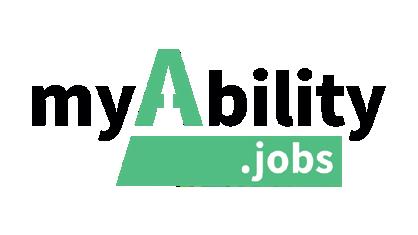












www.meister.co
www.meister.co
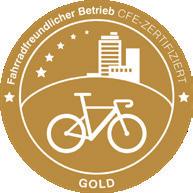








Summer used to be a paradox for women in business.
Longer days, warmer weather—and a million invisible expectations. From managing kids' school breaks, planning holidays, maintaining professional presence, and still showing up for our goals… the sunny season often brought a not-so-sunny overload.
But what if this summer could be different?
What if, instead of burning out trying to do it all, we could finally rebalance—with a little help from AI?
Let’s face it: the traditional “summer slowdown” is a myth—for women, at least. While many industries loosen up in July and August, women often step into double duty roles. Business deadlines don’t vanish, and neither do family responsibilities. The pressure to be productive and present can feel relentless. And when you’re a founder, leader, or entrepreneur, switching off isn’t always an option.
1 2 3 4 5
Smart Content Creation
Whether you’re writing newsletters, creating social media posts, or building lead magnets —AI can help you do it faster and better. So you can batch content in June and enjoy more sun in July.
Tools like AI schedulers, inbox sorting, or proposal generators reduce the cognitive load —freeing up mental space for strategy, not spreadsheets.
Clearer Decision-Making
Data analysis tools can highlight what’s working and what’s not—helping you focus on the 20% of work that creates 80% of the results.
Creative Sparring Partner
Feeling stuck? AI brainstorming assistants help you break out of the mental fog and ideate with confidence — even after a long beach day.
AI can’t replace your intuition, values, or vision. But it can make space for them. By outsourcing the repetitive, we reconnect with the meaningful.
Learn from Dr. Orsi Szabo, AI Marketing Strategist and Expert at Women & Business Magazine.
Explore 1:1 consultations or stay tuned for the upcoming Women & Business Academy trainings to discover how AI can support your business growth, content creation, and summer balance.
Let AI work while you rest—because the most feminist thing you can do this summer… is reclaim your time.
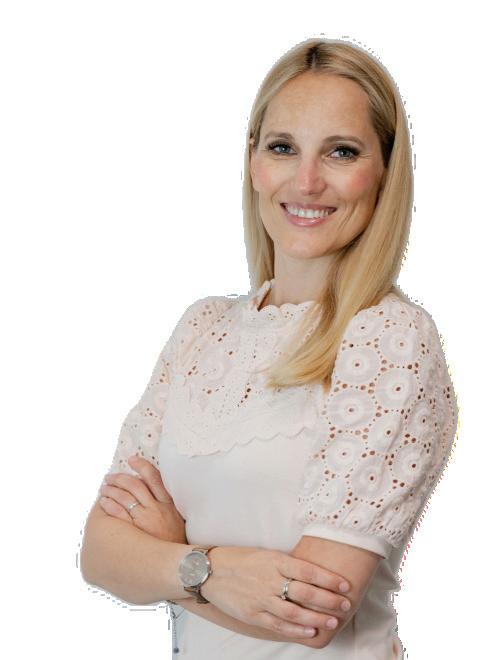
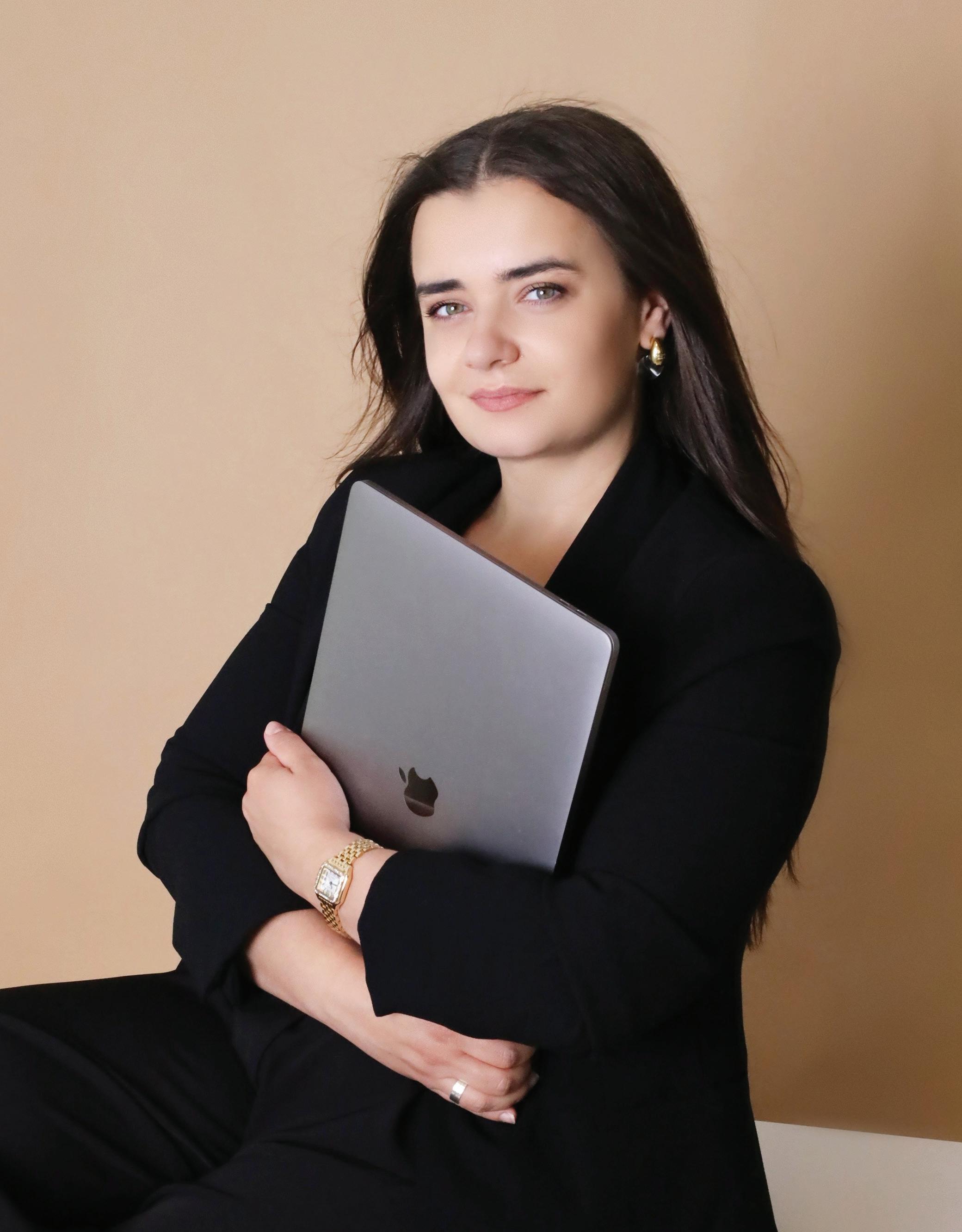

Medina Mešić, Co-CEO of MM Microsoldering Solutions and founder of a soon-to-launch digital marketing agency, is quietly reshaping Austria’s tech scene while creating opportunities for women and minorities. From dishrooms in Bosnia to mentoring in Graz, her journey reflects vision, empathy, and integrity over privilege and shortcuts. In this interview, she shares how starting over and building ethically became her greatest success.
Your journey began eight years ago when you moved to Austria. What were some of the most defining moments in that transition — personally and professionally?
Moving to Graz marked the beginning of a transformative chapter in my life. Looking back over these eight years, there were several defining moments that shaped not only my career, but also my personal identity.
The reality check: starting from the bottom
When I first arrived in Austria, I didn’t walk straight into a tech role. I worked jobs far removed from my qualifications — cleaning, manual labor — just to make ends meet while studying and learning the language. That was a humbling experience that taught me resilience. It reminded me that no task is beneath you when you're building something greater.
One of the biggest personal challenges was mastering the German language and integrating into a culture that was entirely new to me. As a woman in tech — and a foreigner — I had to work twice as hard to earn the same credibility. But over time, I built strong relationships, both professionally and personally, by showing commitment, expertise, and a willingness to learn.
The turning point: combining passion and profession
A crucial moment came when I realized that I could combine my technical background with my passion for design and marketing. That intersection became the cornerstone of my career. I wasn’t just another engineer — I was someone who could bring innovation to market through strategy, branding, and a deep understanding of both tech and user behavior.
Together with my husband, I co-founded MM Microsoldering Solutions with a clear vision: to set new standards in the field of high-tech electronics repair and microsoldering. From the very beginning, our goal wasn’t just to offer a service, but to reshape the way this industry operates — through transparency, innovation, and true technical excellence.
In this company, I’ve been able to bring together everything that defines me professionally: my background in microelectronics, my experience in software engineering, and my passion for marketing, strategy, and leadership
You are mentoring young women in tech. What motivated you to take on that role, and what impact have you seen from your mentorship?
Taking on the role of a mentor to young women in tech was never just a professional decision — it came from something deeply personal. I know how it feels to be overlooked, underestimated, or simply not seen — because I’ve lived it. That’s exactly why I choose to be visible, approachable, and supportive — for women who are walking a path I know well.
In my own company, I’ve made it a point to create opportunities for young women — especially students from technical fields — who remind me of my younger self. I see them, I recognize their drive, and I give them space to grow. Every woman on my team who shows commitment and curiosity is given the chance to prove herself — and I’m deeply proud of that.
For me, this isn’t about profit — it’s about purpose. I believe that what we truly own in life is only what we’re willing to give — whether it’s knowledge, time, or opportunity. If I can open a door that once stayed shut for me, then I know I’m creating something bigger than myself. That, to me, is real success.
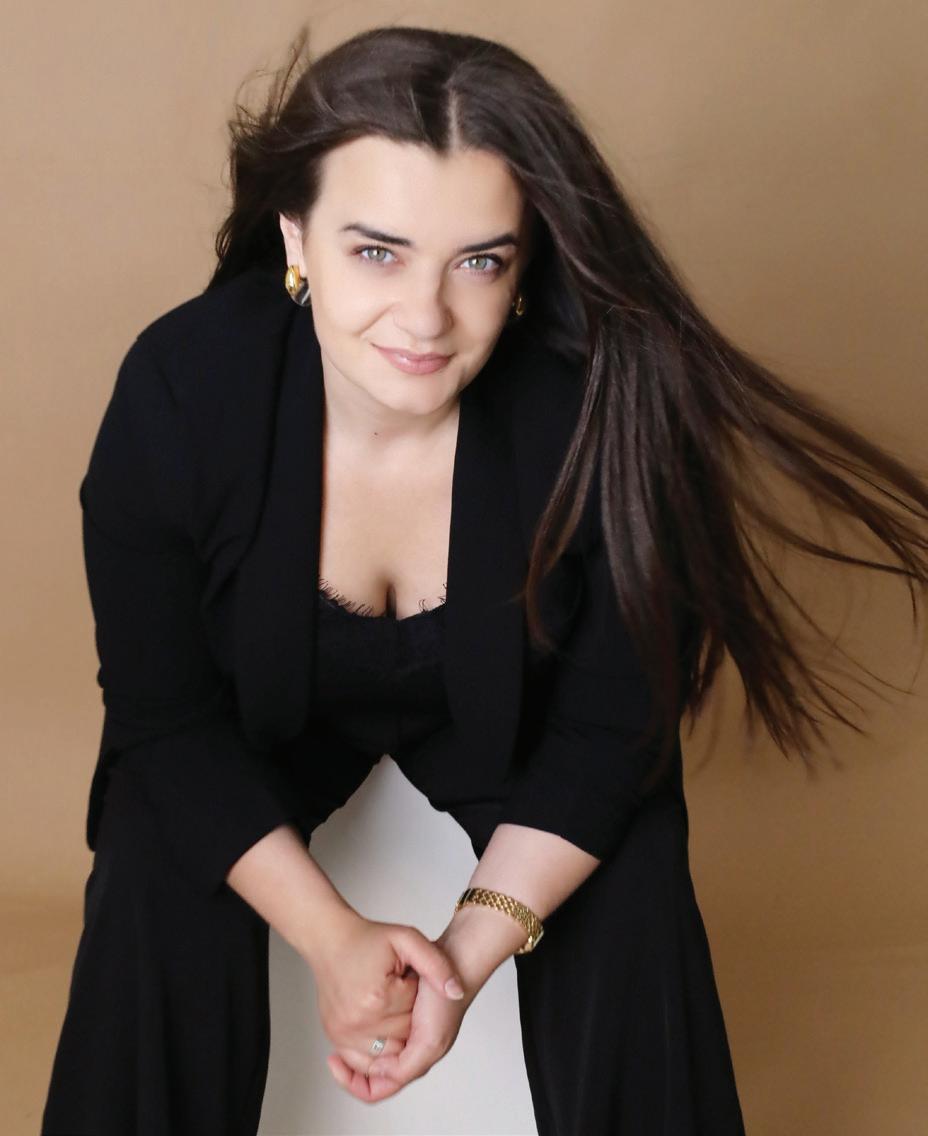
Tell us about your second business, focused on digital marketing and innovation. How does this project reflect your personal values and your vision for the future?
My second business — focused on digital marketing, branding, and innovation — is a space where I bring together creativity, strategy, and technology. One of my core focuses is SEO optimization and the integration of AI-driven tools to enhance online presence. I strongly believe that visibility should come from substance — not from paid ads or short-lived campaigns. Personally, I don’t engage with “sponsored” content as a consumer, and professionally, I build strategies that reflect that same mindset. I prioritize organic reach, core content quality, and brand trustworthiness, rather than buying clicks or relying heavily on Google Ads.
That’s the same approach I bring into the marketing strategy for my main company, MM Microsoldering Solutions — where innovation and sustainability are not just buzzwords, but guiding principles. Whether it’s repair technology or digital visibility, I believe in earning attention through real value and standing behind every result with knowledge, quality, and integrity.
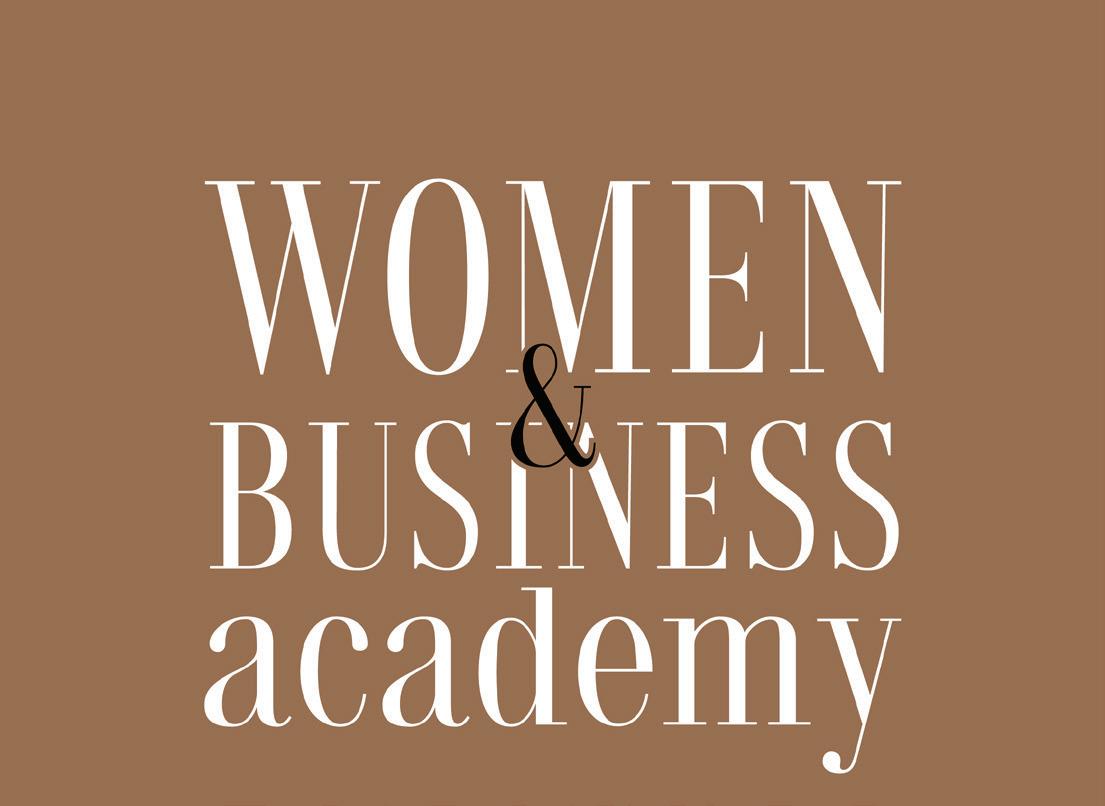
From 2025 onwards, AI will be as essential to digital communication as social media was back in 2010. This is no longer a “maybe later” conversation.
If you sit it out, you’ll fall behind.
A hands-on, interactive 3-month mentorship program designed to transform your online communication into something faster, smarter, and truly effective — all powered by the hottest AI tools and trends.
We’ll equip you with practical strategies, step-by-step guidance, and real-life tools so you can confidently use Artificial Intelligence to boost your business, save time, and stay ahead.
The Women & Business Academy AI Marketing Program is built around real-life use cases and practical implementation. Each module gives you hands-on experience with the most relevant tools – no theory overload, just what you can use right away.
Don’t miss out, we’ll start our next AI marketing course in September!
For more details and upcoming courses, visit Women & Business Academy’s website: womenandbusinessmagazine.com/women-business-academy/

